BEST PLACES
And The People Who Are Making Them Even Better

And The People Who Are Making Them Even Better
THE REAL 1623: BAD LUCK, FAMINE, NASTY WEATHER, DISEASE AND A HOT-HEADED MILES #?@>! STANDISH











We are committed to what we do. We have compassion in what we do. And we try to do it with the highest integrity.
—Dr. Jamie Kim
CASA of NH would like to thank and celebrate the generous sponsors who made our annual gala, CASA Cares, possible this year. Thanks to your generosity, we can work toward having a caring advocate available for every New Hampshire child who has experienced abuse or neglect.


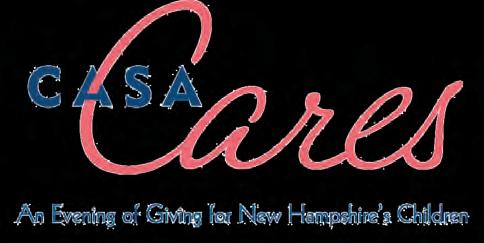








Court Appointed Special Advocates (CASA) of New Hampshire provides a voice for children and youth who have experienced abuse and neglect by empowering a statewide network of trained volunteers to advocate on their behalf so they can thrive in safe, permanent homes. Learn more at www.casannh.org.

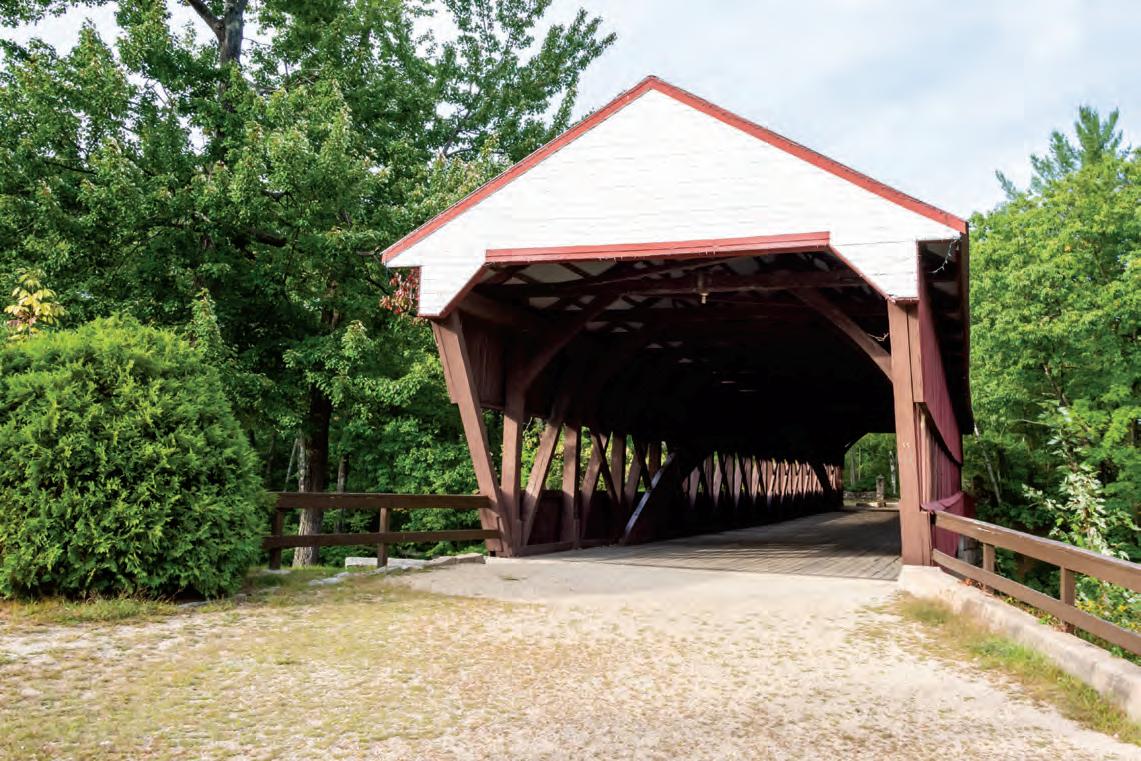























THANK YOU To Chef Andrew Zimmern, Donors, Sponsors, Volunteers, Guests and everyone who helped make this event such a tremendous success.
THANK YOU To Chef Andrew Zimmern, Donors, Sponsors, Volunteers, Guests and everyone who helped make this event such a tremendous success.














®
®






















 HORNITOS® TEQUILA, 40% ALC./VOL. ©2023 SAUZA TEQUILA IMPORT COMPANY, CHICAGO, IL.
HORNITOS® TEQUILA, 40% ALC./VOL. ©2023 SAUZA TEQUILA IMPORT COMPANY, CHICAGO, IL.
Catholic Medical Center (CMC) is pleased to be a part of New Hampshire Magazine’s Best Places in New Hampshire. After all, we’ve been ranked a best place to work in New Hampshire and are committed to providing the very best care to you and your family. Our network of physicians and skilled specialists extends to every corner of our great state to support your health and wellbeing— just like the majestic outdoors of the Granite State. Being active has tremendous benefits for your physical and mental health, so we hope you use this guide to discover a new activity or rekindle a summer tradition. No matter what you take on this summer, CMC is here to help you make the most of all that New Hampshire has to offer.

NHMAGAZINE.COM
Vice President/Publisher Ernesto Burden (603) 624-1442 x5117 ernestob@yankeepub.com
Editor Rick Broussard (603) 624-1442 x5119 editor@nhmagazie.com
Managing Editor Emily Heidt (603) 624-1442 x5115 eheidt@nhmagazine.com
Managing Editor, Custom Publications Robert Cook (603) 624-1442 x5128 robertc@yankeepub.com
Assistant Editor Caleb Jagoda (603) 624-1442 x5010 cjagoda@nhmagazine.com
Art Director John R. Goodwin (603) 624-1442 x5131 johng@yankeepub.com
Creative Services Director Jodie Hall (603) 624-1442 x5122 jodieh@yankeepub.com
Senior Graphic Designer Nancy Tichanuk (603) 624-1442 x5126 nancyt@yankeepub.com
Senior Graphic Production Artist Nicole Huot (603) 624-1442 x5116 nicoleh@yankeepub.com
Advertising & Events Sales Director Jenna Pelech (603) 624-1442 x5154 jennap@yankeepub.com
Sales Executives Josh Auger (603) 624-1442 x5144 jauger@nhmagazine.com
Jessica Schooley (603) 624-1442 x5143 jessicas@yankeepub.com
Operations Manager Ren Chase (603) 624-1442 x5114 renc@yankeepub.com
Sales & Events Coordinator Paul Milone (603) 624-1442 x5121 paulm@yankeepub.com
Business & Sales Coordinator Paula Veale (603) 624-1442 x5110 paulav@yankeepub.com
Digital Operations Morgen Connor (603) 624-1442 x5149 and Marketing Manager morgenc@yankeepub.com
Contributing Photographer Kendal J. Bush kendal@kendaljbush.com
Billing Specialist/IT Coordinator Gail Bleakley (603) 563-8111 x113 gailb@yankeepub.com
Staff Accountant Nancy Pfuntner (603) 563-8111 x138 nancyp@yankeepub.com
VP/Consumer Marketing Brook Holmberg brookh@yankeepub.com
VP/Retail Sales Sherin Pierce sherinp@yankeepub.com
Alex Walker President & CEO Catholic Medical Center
NEW HAMPSHIRE GROUP 100% Employee-Owned
250 Commercial Street, Suite 4014 Manchester, NH 03101 (603) 624-1442, fax (603) 624-1310

E-mail: editor@nhmagazine.com
Advertising: sales@nhmagazine.com
Subscription information: Subscribe online at: nhmagazine.com or email customerservice@nhmagazine.com
To order by phone call: (877) 494-2036 © 2023 Yankee Publishing, Inc.
New Hampshire Magazine® is published by Yankee Publishing, Inc., 250 Commercial Street, Suite 4014, Manchester, NH 03101, (603) 624-1442. All rights reserved. Reproduction in whole or in part without the written permission of the publisher is prohibited. The publisher assumes no responsibility for any mistakes in advertisements or editorial. Statements/ opinions expressed herein do not necessarily reflect or represent those of this publication or its officers. While every effort has been made to ensure the accuracy of the information contained in this publication, Yankee Publishing, Inc.: New Hampshire Magazine disclaims all responsibility for omissions and errors. New Hampshire Magazine is published monthly, with the exception of February and April. USPS permit number 022-604. Periodical postage paid at Manchester 031039651. Postmaster send address changes to: New Hampshire Magazine, P.O. Box 37900, Boone, IA 50037-0900
PRINTED IN NEW HAMPSHIRE
18 An Inspired Mother’s Day
Pamper mom with a day of personalized activities that go way beyond breakfast in bed.
 By Emily Heidt
By Emily Heidt
22 Our Town
A historic visit to Dublin
By Barbara Radcliffe Rogers
26 A Dining Experience that Exceeds Expectations
Trattoria Fondi makes a grand and lasting impression
 By Michael Hauptley-Pierce
By Michael Hauptley-Pierce
32 New Hampshire’s
Starting Nine
While the Red Sox suffered through a rough 2022, let’s hit the ground running for the 2023 baseball season with a look back at New Hampshire’s firm baseball foundations.
 By Clayton Trutor
By Clayton Trutor
36 Blips
Embracing her natural locks
By Casey McDermott38 First Person
Casting for Memories of Mom
By Brion O’Connor42 What Do You Know Pull and Be Damned!
By Marshall Hudson86 Trail Blazing New Hampshire antiques shops offer unique finds that enhance personal style.
 By Matthew Mead
By Matthew Mead
90 Health
Spring: Tis’ the Season to be Sneezin’?
By Krysten Godfrey Maddocks93 Calendar Spring events
Compiled by Caleb Jagoda
96 Ayuh
Of Mayflies and Musrats: A Fisherman’s Tale
By Rebecca Rule

But sometime during the second half of my life so far, all spent as a Granite Stater, my heart has warmed considerably toward the Old Man — even in absentia. I think it might have something to do with getting “old” myself.

May 3 marks the 20th anniversary of that cloudy day when the old bones of stone finally gave way, reducing the Great Stone Face to a heap of gray rubble. I was at the annual conference of the City and Regional Magazine Association at the Hyatt Regency in Philadelphia that day, getting ready to go downstairs, when my wife called from New Hampshire and breathlessly asked if I’d heard the “news.”
“What? Did the Old Man fall off the mountain?” I asked with a chuckle. “Yes!” she replied. I turned on the hotel TV for confirmation, suddenly feeling a sense of irrational urgency with no appropriate response. Maybe I should catch a flight home? Instead I went down to join the line at the breakfast buffet. Surprisingly, other editors from far-flung states had already heard the news and expressed their sympathy to me.
So where were you when you learned? I bet, if you’re from here, you remember.
The best Old Man story I’ve heard so far came from Meg MacLeod, current resident of Franconia and the daughter of one of the founders of New Hampshire Profiles magazine — a predecessor to New Hampshire Magazine that filled a similar niche in the second half of the 20th century. Profiles is still so beloved by so many that when I get the occasional call from someone (usually quite old) confusing us with them (and usually seeking a specific story from the 1950s), I’m flattered.
In this case, Meg was neither old nor confused, but thought I might be interested to learn that the publishers of Profiles had, long ago, taken out an actual insurance policy on the Great Stone Face. Since that famous stone profile was part of that magazine’s logo, they felt a proprietary interest. Even then, the Old

Man was on a shaky foundation, facing years of preservation efforts by careful maintenance and the addition of massive turnbuckles to keep everything in place.

Meg explained that after getting Profiles magazine established, her dad, Art Moody, and partners had gone to Nashua’s Slawsby Insurance Company and purchased a policy through the New Hampshire Fire Insurance Co. Then some decades passed and things happened, including the demise of Profiles and the collapse of its symbol.
In a recent email to me, Meg wrote: “About a year after the Old Man collapsed in 2003, we were going through a box of my father’s and we found a press release sent to the Nashua Telegraph about the policy. We figured we would see if we could cash in on the demise of The Old Man. As you might imagine we ran into a lot of obstacles; insurance companies had changed or gone out of business. No one could find the actual policy, only the article and a picture of my dad holding it. Eventually we had to come to the conclusion that there would be no check in the mail!”
Of course, this is just one of many stories of how a prominent, local example of pareidolia (defined as “the tendency for perception to impose a meaningful interpretation on a nebulous stimulus, usually visual”) has gone on to influence and inspire so much emotional and intellectual activity.

I’m compiling the stories I know and some I’m still researching (like the Old Man Insurance Policy) for an online project that we’ll roll out before May 3 (recently voted into N.H. law as “Old Man of the Mountain Day”). And we had so many responses to our appeal to readers for suggestions for this issue’s “Best Places (Picked by Real People)” feature (see page 52) that I boldly invite you to submit your own best Old Man memories to me at editor@nhmagazine.com.


Don’t hate me, but I was originally not that fond of the Old Man of the Mountain. I’m from out of state (ain’t we all?). Maybe that stony visage was just less endearing to someone whose formative outdoor experiences were not bracketed by drives past it.










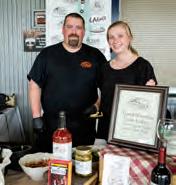


Photographer Jared Charney’s work has appeared in numerous national and regional publications, including The Wall Street Journal, The Boston Globe, Yankee Magazine, Northshore Magazine, AAA Travel Magazine and many more. He took the portraits for this month’s feature “Best Places Picked by Real People.”






New Hampshire’s journal of multicultural living, 603 Diversity (also produced by Yankee Publishing), is looking for some creative assistance to come up with a new t-shirt design to promote their message of aspirational unity: Live Free and Rise. If you are an artist or designer who might like to participate in their mission (and showcase their mission statement), we are soliciting art suitable for a t-shirt that captures the essence of a changing and diversifying Granite State. Just be sure to incorporate “Live Free and Rise” into the design and keep things simple to allow for good reproduction. We’ve partnered with students of the Institute of Art & Design at New England College to get the ball rolling, and they already provided a number of great ideas, including this image of New Hampshire’s state bird, the purple finch, sprouting a surprising array of new colors against a rising sun, by Chloe Paradis, class of ’24. To see other submissions or learn more about the t-shirt challenge, visit 603Diversity.com.

Finding a home at Taylor means more than access to a stunning new apartment – it means receiving the keys to present and future peace of mind.
Coming soon to picturesque Wolfeboro, NH, e Residence at Back Bay features beautifully appointed private apartments, assisted living with a purposefully designed memory care neighborhood, and private nursing care. Here is a sampling of what living at e Residence at Back Bay o ers...

• spacious common areas
• libraries and a salon
• wellness suite and spa
• expansive outdoor seating areas
• private balconies
• resident gardens

• beautifully landscaped grounds with walking paths
• chef-prepared, anytime dining from our talented culinary team
• full calendar of social, educational, recreational and cultural activities
• personalized wellness plan and wellness activities
• indoor lap pool with a full schedule of tness classes
• walking distance to the waterfront, and only a short drive or stroll to downtown Wolfeboro


• complimentary transportation
• 24/7 sta and security
One of the biggest bene ts to becoming a resident of Taylor is our continuum of care, as it ensures that you never need to worry about nding another place to call home down the road – come join us!



Contact

(603)

The Granite State Guns article by James Pindell [March-April 2023 issue]misleads readers and contradicts his own sentiments on the questionable data he presented about N.H. voters and national gun statistics. Strict enforcement of existing gun laws versus escalating restrictions on the legal gun owner is the more relevant debate. States with the most restricted gun ownership laws ineffectively prosecute criminals using illegal firearms while penalizing a law-abiding citizen’s right to self-defense. Infusing topics like Roe v. Wade, sexual preference, marijuana and mental health are each important issues that stir emotion but are unrelated to the article’s headline. I only hope the author researched more than platitudes about gun ownership and the 2nd Amendment. It was not evident in the writing.
I urge James to place a gun in his hands and experience the process of buying a firearm. Then, visit a local shooting range to interview firsthand the citizens he is referring to. This can enlighten and humble anyone without basic knowledge of gun ownership.
Yes, N.H. proudly respects the 2nd Amendment with open-carry laws extended to any law-abiding citizen. Anyone reading that article now knows less about N.H. residents and sadly even less about the 2nd Amendment.
— Tom Columbia, MerrimackI always enjoy James Pindell’s columns on New Hampshire politics, and I enjoyed his current piece as well on the gun debate in our state. But I cannot let the following go unchallenged: “New Hampshire has also never had a headline-grabbing mass shooting — a tragedy that forces a community to really grapple with the issue.”
One day in 1997, in Colebrook, NH attorney Vickie Bunnell, newspaper editor Dennis Joos, and state policemen Scott Phillips and Les Lord were murdered by Carl Drega. This was one of the nation’s first mass shootings involving an AR-15, and it grabbed headlines not only all over the nation, but all over the world. The North Country has been grappling with the consequences of that incident ever since. Please, let us not forget.
— Rick Carey, SandwichEditor’s note: Our apologies for this unfortunate oversight in writing and editing this piece and thanks for the reminder.
Many thanks for the recent article “Green Burials” [March-April 2023 issue] that broached the subject of family-directed funerals and natural burials in N.H. I think it’s important to clarify a couple of additional points for readers.
While most people choose to hire funeral directors, it is not required by law; neither are caskets or embalming or hiring someone else to drive to the cemetery. It’s important to note that there are laws for private citizens that are not the same as rules and regulations that funeral directors have to follow as terms of their licensure.
Green burial plots across the country cost the same as conventional ones. Green burials in rural areas tend to cost less than conventional burials, partly due to not having to pay for a vault. N.H. cemeterians are finding inventive ways to keep costs down and still fulfill their public mission, including winter burials.
At NHFREA, we help people learn the facts, and the demand for information is increasing exponentially. The funeral industry’s own surveys have shown a marked increase in interest in recent years, up to 84.4% in a May 2021 Kates-Boyleston study. Often, people who might have chosen cremation become natural burial advocates once they know more — what we call “cremation conversions.” I’m sure your readers will be interested in learning why, and about what’s in the works here in New Hampshire regarding natural burial. The NH Funeral Resources website has plenty of information to get them started: nhfuneral.org.
— Lee Webster, director, NH Funeral Resources, Education and Advocacy
Editor’s note: Thanks for the corrections and additional information. We have a feature story on Death and Dying in N.H. planned for later this year, and we’ll revisit this topic at that time and look forward to your assistance in composing a more accurate piece.
I found your “Independent School Guide 2023” interesting. I guess the rebranding of private schools might make taxpayers forget that our governor likes the idea of taxpayers paying for private schools now.
— Irene Grand, Strafford Editor’s Note: The “Independent School” rebranding of “private” schools has been underway for quite a while. Our editor’s first
good job in New Hampshire, 33 years ago, was working for a small private school in Canterbury that was a member of ISANNE (the Independent School Association of Northern New England).
As an introduction, I am a multi-year reader of your magazine, with the last two years being frequent via purchase and subscription. I leave a copy in my Airbnb, as my guests enjoy reading about a place they are visiting for the first time, finding out about local happenings, or simply learning new things about the Granite State.
After reading through this year’s Top Doctors [March-April 2023 issue], and referencing back to Top Dentists and Top Nurses, I realize I have never read anything on Top Physician Assistants or Nurse Practitioners.
Point being made, it is an injustice to not call out all the exceptional PAs and ARNPs our fine state is lucky enough to call medical professionals. I encourage you to keep this in mind and consider recognizing them for the integral work they do.
— Joseph Hults, Middleton
Editor’s note: We are once again celebrating the state’s “Nurses of Excellence” in our June issue so keep any eye out for that, and I’ll pass your comments along to our friends at the New Hampshire Nurses Association who oversee the selection process. I’m not sure how we might expand to give due recognition to PAs and ARPNs, but it’s worth discussing.
New Hampshire Magazine is such a beautiful magazine, but I’m not renewing my subscription. “Diversity” is what has completely turned me off. I grew up when things needed to change and Martin Luther King did just that. The way things are now, America is so divided and this “diversity” is partly responsible.
I may change my mind over time, but right now I’ll do without New Hampshire Magazine.
— Maureen Faircloth, KeeneEditor’s note: 603 Diversity is actually a free supplemental magazine that is sent out, quarterly, to our subscribers, but I hope you’ll give it another look. While the “diversity” movement can itself sometimes be divisive, the goal of 603 Diversity is all about simply getting to know some people and cultures that share our state whom you might not otherwise meet.
Spot four newts like the one here hidden on ads in this issue, tell us where you found them and you might win a great gift from a local artisan or company.

To enter our drawing for Spot the Newt, visit spotthenewt.com and fill out the online form. Or, send answers plus your name and mailing address to: Spot the Newt c/o New Hampshire Magazine 250 Commercial St., Suite 4014, Manchester, NH 03101
You can also email them to newt@nhmagazine.com or fax them to (603) 624-1310.




Last month’s “Spot the Newt” winner is Michael Nawoj of Franklin. March/April issue newts were on pages 9, 13, 23, 89
The prize is a gift certificate for $50 to use online at nhmade.com or at the New Hampshire Made Store, 28 Deer St., Portsmouth. New Hampshire Made is our state’s official promoter of products and services created here in the Granite State, and the online store and downtown shop are packed with delightful gifts and specialty foods made with Granite State pride. nhmade.com



Tour historic houses on original sites, meet engaging costumed roleplayers, watch traditional crafts demonstrations, and explore historical gardens and landscapes.



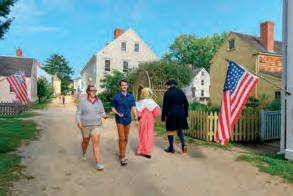
Open daily May 1-October 31
Featured Exhibit 2023: Portsmouth Possessions: Objects that Shaped the City Plus!
Year-round events. Seasonal tours. Outdoor ice-skating December-February.
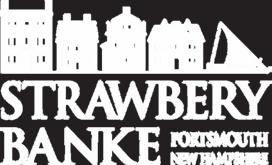
Value remains the core of who we are as we celebrate our 35th anniversary with brands that families love alongside the biggest names in fashion. New Hampshire is tax-free and added savings for seniors to students, or from our popular coupon book, gives everyone the opportunity to save.


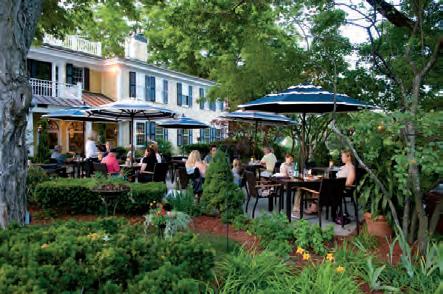





“The influence of a mother in the lives of her children is beyond calculation.”
— James E. FaustPHOTO BY MARIAN VEJCIK
Mother’s Day 2023 falls on Sunday, May 14. If you don’t have that date circled on your calendar, take a minute to do it now. (We won’t judge if you forgot.) Planning the perfect day for the perfect mom takes time, which is why we’re here to help you make the day a little more special and personal for her. We aren’t talking store-bought gifts or last-minute brunch reservations at the Omni Mount Washington or The Old Salt, though neither of those options are bad ideas; we’re talking about spending quality time together in unique places around the Granite State. Whether you choose a date at a local tearoom, a scenic tour around Woodstock or the Isles of Shoals, or even a cozy paint night in, our curated activity list goes beyond a vase of sunflowers to make sure mom feels loved and celebrated this year.


Each of these tearoom experiences offer a whimsical escape from day-to-day life, and a step into a “Chronicles of Narnia” wardrobe meets “Pride and Prejudice” afternoon high tea that will lead to an abundance of relaxation and pampering. (Don’t forget your fascinator — pinkies up!)
Étagère
114B Rte. 101A, Amherst (603) 417-3121 sipshopsoak.com
The Silver Fountain Inn & Tea Parlor 103 Silver St., Dover (603) 750-4200 silverfountain.com
The Cozy Tea Cart 104A Rte. 13, Brookline (603) 249-9111 thecozyteacart.com
Fezziwig’s Food and Fountain 112 State St., Portsmouth (603) 501-0023
fezziwigs.shopsettings.com
Whether your mom wants to try her hand at learning how to make pasta, or she’d rather sheet-pan meals for the family, each of these cooking classes and their expert chefs will have her feeling like Julia Child by the end of the day. (Check out their websites for virtual class options if you’d prefer to stay home!)

The Culinary Playground
16 Manning St., Suite 105, Derry (603) 339-1664
culinary-playground.com
Williams-Sonoma
9 Via Toscana, Suite 620, Salem (351) 277-6136
williams-sonoma.com
Liz Barbour’s Creative Feast Hollis (603) 321-5011 thecreativefeast.com
For a bit of outdoor relaxation, visit one of the state’s public gardens, each offering inspiration (maybe for mom’s own garden, or just to delight in) and time for a much-needed pause among natural beauty.

Petals in the Pines
126 Baptist Rd., Canterbury (603) 783-0220
petalsinthepines.com
Fuller Gardens
10 Willow Ave., North Hampton (603) 964-5414
fullergardens.org
No need to take mom out to have fun. An indoor picnic? An evening spent sipping wine and painting?
A game or craft night? These local companies will help you create Polaroid-worthy memories in the comfort of your own living room.
Seacoast Picnic Co.
Portsmouth • (603) 809-9437
seacoastpicnic.com
Boho Pop-up Picnic

Bedford • bohopopuppicnic.com
Muse Paintbar
42 Hanover St., Manchester, (888) 607-6873 • musepaintbar.com
AR Workshop
875 Elm St., Manchester (603) 573-9662 • arworkshop.com
Brainstorm Puzzle Co.
Dover • wearebrainstorm.com
Tarbin Gardens
321 Salisbury Rd., Franklin (603) 934-3518
tarbingardens.com
Kirkwood Gardens
900 Route 3, Holderness (603) 968-7194 nhnature.org
Lost River Gorge & Boulder Caves
From island walking tours, to brewery or birding tours, to tours through the mountains or through an arcade, there are endless Granite State adventure opportunities to scratch mom’s every camaraderie-plus-exploration-tour itch.

Funspot
579 Endicott St. North, Laconia (603) 366-4377 funspotnh.com
Isles of Shoals Steamship Company
315 Market St., Portsmouth (603) 431-5500 islesofshoals.com
Scenic RailRiders
188 Sewalls Falls Rd., Concord (603) 931-1700 scenicrailriders.com
Lost River Gorge & Boulder Caves
1712 Lost River Rd., North Woodstock (603) 745-8031 lostrivergorge.com
Alpine Adventures
41 Main St., Lincoln (603) 745-9911 alpinezipline.com
The Savory Lane (978) 912-0444 thesavorylane.com
A beautiful bouqet of flowers is a tried and true Mother’s Day gift, one that will surely bring your mom some much-needed joy.
Cymbidium Floral
141 Water St., Exeter (603) 772-1300
cymbidiumfloral.com
Apotheca Flowers
24C Main St., Goffstown (603) 497-4940
apothecaflowershoppe.com
Jacques Flower Shop and Garden Center
712 Mast Rd., Manchester (603) 625-5155
jacquesflowers.com
Prescott’s Florist
23 Veterans Sq., Laconia (603) 524-7945
prescottsflorist.com

Mountain Roots Farm
4123 Main St., Bethlehem (603) 686-0296
mountainrootsfarm.org
Ruthie’s Flower Shop
328 White Mountain Hwy., Conway (603) 447-8878
ruthiesflowershop.com
There are plenty of great things to eat and do during Mother’s Day weekend, including special brunches at local wineries, craft fairs and a whole lot more. Check out our website at nhmagazine.com for more tips on where to visit and brunch with mom, as well as local gift ideas that she will love.

In Full Bloom: Floral Still Life & Garden, March 24-August 31
This art exhibit captures the spring season through bright, airy paintings of flourishing flowers, great gardens and lush landscapes. It showcases a collection of floral and garden paintings from artists including Emil Carlsen, Dines Carlsen, Benjamin Champney and more. Free. New Hampshire Antique Co-op, 323 Elm St., Milford. nhantiquecoop.com
Amherst Garden Club Plant Sale, May 13
This year includes an abundance of vendors with veggies, herbs, hanging pots, houseplants, garden ornaments, used garden books and magazines, container pots — a one-stop kick-off for your gardening season. Something for everyone. Kids can also pot a flowering plant for their special mom. Free. 8:30 a.m. to 1 p.m. Wilkins School, 80 Boston Post Rd., Amherst. amherstgardenclub.org
Mother’s Day Craft Festival, May 13-14
More than 75 juried craftsmen and craftswomen from all over New England will display and sell their American-made works, including stained glass, original watercolors, photography, pottery, carved wildlife, folk art, hand-crafted soaps, country wood, quilts, doll clothes, jewelry, floral design and more. Free. Saturday 10 a.m. to 5 p.m., Sunday 10 a.m. to 4 p.m. Hampton Falls Town Common, 4 Lincoln Ave., Hampton Falls. castleberryfairs.com
Sunday Jazz Brunch: Nadia Washington Quartet, May 14
Bop over to Jimmy’s for coffee, cocktails and mimosas, and culinary delights, plus generous helpings of culture and great conversation. The menu includes scrambled eggs, breakfast potatoes, Jimmy’s salad, a prime rib carving station and more. Times vary. $65. Jimmy’s Jazz & Blues Club, 135 Congress St., Portsmouth. jimmysoncongress.com
Mother’s Day High Tea Brunch & Wine Pairing, May 14
This Mother’s Day High Tea Brunch & Wine Pairing is an experience to share with mom, sisters, friends and the wine lovers in your life. The event includes the following items per guest: a cup of hot tea, a pre-set four-course high tea-inspired brunch and a preselected flight of four wines samples (must be 21+). $59. 11 a.m. and 2 p.m. Averill House Vineyard, 21 Averill Rd., Brookline. averillhousevineyard.com
Mother’s Day Brunch, May 14
Celebrate mom on the M/S Mount Washington’s first cruise of the season. Brunch features a grand buffet, cruise, entertainment and a flower for mom. Prices vary. 10 a.m. and 2 p.m. Mount Washington Cruises, 211 Lakeside Ave., Laconia. cruisenh.com
PHOTO BY STILLMAN ROGERSIn the nearly half-kilometer of bookshelves that cover the walls of my home and office are several yards of books on New England, most of them on New Hampshire. Many are long out of print, a few are bone-dry town histories, but most lead to a few hours of browsing whenever I pull one from the shelf.
“Dublin Days” is one of those, a lighthearted combination of history, village life, gossip and the reminiscences of the town’s long-time storekeeper, postmaster and selectman, Henry Darracott Allison. A fair part of the book relates to an especially interesting period in Dublin’s history when the town was both a noted art colony and the summer home for prominent figures in government, business and other endeavors. This included, for several summers in the early 1900s, the British Embassy.
The art colony drew not only artists and writers, but luminaries in other fields who were drawn to the intellectual and cultural climate of Dublin summers. The first
boarding house opened here in 1840 and the first summer “cottage” was built in 1872 for a Boston family. Others followed and the community grew to include notable (and wealthy) Bostonians and others.
The lure of Mount Monadnock and the clear, cool country air attracted outdoor enthusiasts and later inspired artists and writers. By the turn of the 20th century, those who returned regularly, along with their house guests, formed a who’s-who of the arts and government.

Artists John Singer Sargent, Abbott Thayer, Barry Faulkner, George de Forest Brush and Rockwell Kent worked and played here. Mark Twain, poet Amy Lowell, novelist John P. Marquand, actress Ethel Barrymore, Amelia Earhart, Admiral Richard Byrd, ambassadors, at least one cabinet member and President William Howard Taft all spent time in the “cottages” that sprang up around Dublin Lake and along the surrounding hills.
Local families found opening their farms to paying summer guests and working on their estates more profitable than sheep farming, which had long since replaced trying to wrest a living from the scant soil.
In “Dublin Days,” Henry Darracott Allison recounts personal experiences with many of these summer guests, to whom he delivered groceries. Allison was an interesting character himself. His fine penmanship reached the point of calligraphy and he was in great demand to create diplomas and award certificates. When he died in 1963 at the age of 94, his grave in the Town Cemetery was marked by a bronze plate imbedded in a rough field stone. Across the top of the plate lies his inscribed, elegant signature.
The cemetery, on a slope overlooking Dublin Lake, reveals much about Dublin’s early history — with the stone walls of the Town Pound at one corner, and signs identifying the land as the location of the original town center. The first settlers came in 1753 but didn’t stay; a hardier lot arrived 10 years later, and Dublin was incorporated in 1771. Winds sweeping across the lake made the original town site uninhabitable —
We are proud to announce that ten DMC doctors have earned recognition from their peers as New Hampshire’s Top Doctors in Family Medicine. These doctors represent all DMC providers who continually provide the highest quality care to our patients.
themerrimack.com
From left to right:
John Daley, MD Derry
Jay Bryan Bannister, MD, Bedford
Katharine Wetherbee, DO, Londonderry

James Fitzgerald, MD, Bedford & Goffstown
Lydia Bennett, MD Bedford (retired)
Eight DMC providers have earned recognition from their peers as New Hampshire’s Top Doctors in family medicine for 2022. They proudly represent the highquality care DMC patients receive from all our providers.


Anne Barlow Barry, DO Concord & Windham
Cristi Egenolf, MD Derry
Douglas Dreffer, MD Concord & Derry
Douglas Phelan, DO, Windham
Adam Androlia, DO, Bedford & Derry
Always welcoming new patients. Online self-scheduling available!
WelcometoDMC.com
Always welcoming new patients. Online self-scheduling available! WelcometoDMC.com
That’s MERRIMACK Style.
At The Merrimack, we’re all about listening and collaborating to help you find the right solution. Being good listeners. That’s just how we roll.
or at least uncomfortable — so the town center migrated up the hill to a more hospitable site.
Originally the town included Harrisville, where there was a water source to power mills. But in the 1860s the two parts of town differed over funding the building of


a railroad. The textile village of Harrisville needed rail transport to get their mill products to markets, but farmers in upland Dublin outvoted them. Harrisville petitioned the Legislature for a separate town, which was carved out of Dublin and a portion of Nelson, in 1870.
Meanwhile, the town center grew, with the 1852 Dublin Community Church at its core. Today this center comprises the Dublin Village Historic District, listed on the National Register of Historic Places. Distinguished among the dozens of buildings included in the listing as historically and architecturally significant is the 1825 Dr. Asa Heald House on Main Street, built from plans by Charles Bulfinch.
The arts and crafts-style Dublin Public Library comes from a later era — the final successor to the Dublin Juvenile Library, the first free public library in America, formed in 1822 and supported by contributions. The 1901 library, built in stone and wood, has Gothic Revival accents in the façade windows. Its historic copper gutters were replaced with replicas in 2021.
Also in this historic district and from a later era is Emmanuel Church, the second oldest of the nine seasonal chapels of the Episcopal Church of New Hampshire, one of two on the National Register. Built in 1882, the wooden, shingle-style church has original Tiffany stained glass windows and an octagonal cupola.
Eminent in the village center is the headquarters of Yankee Magazine, founded here in 1935 by Robb and Beatrix Sagen-
dorph, and expanded in 1939 with the purchase of “The Old Farmer’s Almanac.” Yankee Publishing purchased assets from McLean Communications in 2012, taking over New Hampshire Magazine. Thus, this article comes by way of Yankee Publishing, continuing the town’s abundant artistic and cultural traditions to the present day.



The glory days of the Dublin summer colony faded with the Great Depression and World War II. But they left Dublin with another rich architectural heritage,
recognized by the town’s second listing on the National Register of Historic Places. The Dublin Lake Historic District includes the cottages around the lake itself and those above on Beech Hill. These represent two prevalent styles of the era’s summer homes. The Victorian shingle style, primarily on the hill, were the earliest wave, characterized by gambrel roofs, wide verandas and dark wooden shingle siding. Later and grander were the Italianate villas, usually set in more elaborate landscaped gardens that could
be enjoyed from terraces, gazebos and pergolas.


While most of the grander cottages are secluded by trees or walls, you can glimpse some of them on a slow drive around Dublin Lake or on the hilltop roads between Dublin and Harrisville. NH

Don’t forget the bruschetta, seen here with a crispy fig and prosciutto pizza.

 BY MICHAEL HAUPTLY-PIERCE / PHOTOGRAPHY BY KENDAL J. BUSH
BY MICHAEL HAUPTLY-PIERCE / PHOTOGRAPHY BY KENDAL J. BUSH
Sometimes when there is a lot of build-up for an event, you set up expectations in your mind and then the reality ends up being a let down. I was assigned on your behalf, gentle reader, to experience just such an “event” — the opening of Trattoria Fondi, the newest dining destination at the Bedford Village Inn, and this is not one of those occasions.
Discretely tucked into the ground floor of The Grand (the most recent addition to the BVI grounds) is Trattoria Fondi. My wife, Charlene, and I arrived early to meet the amazing Kendal Bush (who took photos for this article), and everything was ready for service. Having both worked in and owned hospitality spots, I consider myself fairly in tune with the service aspect in bars and restaurants, and I enjoy reading the backstory through behavior and body language. I felt like we had walked into Delmonico’s NYC during the grand era of dining. The entire staff made eye contact and invited us to sit at the bar while Kendal photographed a few drinks and plates. I was certain that the maître d’ must have lined up everyone before shift to make sure that nails were trimmed and shoes were shined.
We were joined by Kendal’s arm candy, Aaron, and my friend and musical collaborator Ernesto (who also publishes this magazine). I had my lovely bride as a designated driver, so I assumed the dominant drinking role for the evening. I ordered an “Inn Fashion,” which, in addition to being a great pun, was a quaffable beverage. Woodford Bourbon, Bully Boy Amaro, Lindemans Kriek and hopped simple syrup. I am not a huge Lindemans fan, but the balance of the herbal hops and sweet/ tart cherry with the vanilla and oak of the bourbon and the hit of bitterness from the amaro made a cocktail that was dangerously easy to drink.


Ernesto and Aaron started to argue about wine. I am not going to lie to you, gentle reader, and pretend that I am not a wine guy. I am. I was a wine guy with a lifetime tasting pass for Mirassou Winery as soon as I was 21 and I feel like I built the base of my flavor sense in those cellars. But the dude cannot abide wine conversations. Perhaps it is my California upbringing, where you heard phrases like “terroir” and “cork taint” in parent-teacher conferences, but I opted to gracefully back up from their chat (beep, beep, beep) and examine my surroundings a bit more closely.
The walls, partially wrapped in a lush, red grass wallpaper, gave a nice dimensionality to the space with much of the lighting tucked into soffits in the ceiling, so the illumination is diffuse and yet the space is not dark. A center half-wall displayed mismatched pieces of crockery, giving a nice homey diversion from the formality of the rest of the space. The room was originally a hotel lobby bar, and only emerged from its chrysalis late last year as Fondi. Occupancy is just 36 seats, and, as the cameras and lights were put away, most of those seats filled up quickly.

As the restaurant swung into fullcapacity service, we sat down for our meal. Kendal may or may not have shot 100 or so more pictures and, in the process, perhaps moved us all around the table like it was the tea party in Wonderland and there was “no room!” Anything for the shot. I should have shaved.
Melissa Quinn-Samaras, sales and marketing director, organized the evening for us, and was there to make introductions and make sure we felt at home. We got to chat with Chef Tina Verville about seasonality and menu design, and then the first round of food arrived, opening with several salads, the best being a mix of bitter field greens, fennel and citrus supremes with a bit of ricotta salata cheese and a hint of bergamot vinaigrette. It reminded me of a salad we do at home, and mine disappeared in a flash.
As the next course made its way over, I was reduced to monosyllables of affirmation, such as “mmmmm” and “yahhhhh.” There appeared upon my table a tail of a whale with a bounty about it; a seafood tower to draw tears from Neptune himself. The shrimp were tender and sweet, perfectly toothsome. There were small,
locally sourced oysters as well. I try not to be a snob, but when it comes to oysters, I am, and I’m glad I managed to grab the last one. Briney and clean, perfectly shucked, no sauce needed. Some small raw clams joined the party, but I never got to meet them. Rumor has it they were quite enjoyable. The smoked salmon was silky and not over-smoked, but I felt the real star was the smoked trout. Light mouthfeel, flakey yet moist, perfect smoke — I will totally try to rip this off the next time I fire up the smoker. And then, all of a sudden, all of the seafood was gone.
But fear not, my friend, for we have many more courses to go. Our server, Patrick, was masterful at assessing needs. He would silently walk by, making eye contact to see if we needed anything and continue on if not. Perfectly in tune yet unobtrusive, Patrick whisked the now-debauched tower away for a proper burial, and replaced it with a two-dimensional display of Mediterranean marvelousness; so many ways to make pork even better than it already was, all represented here: prosciutto, salume, capocollo. A nice assortment of olives adorned one end of the board, with fresh berries and
candied orange peel. There were some airy housemade “cacio e pepe” crackers, as well as several fresh breads. On a normal night this would have been a wonderful dinner all by itself. The platter remained at our table, and we diligently worked on it over the next several hours. Servers removed plates, glasses and utensils as we discarded them. The service was truly top shelf.
We ordered another round, and Ernesto selected a bottle of Barolo, which had just the right balance of tannins and jammy-




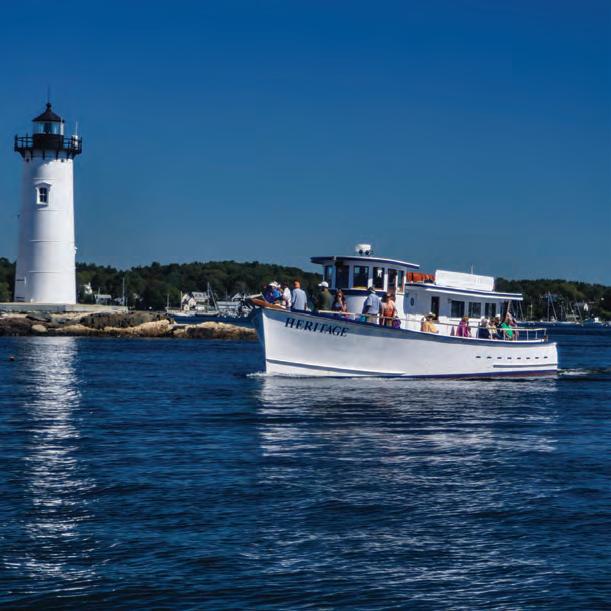
ness. Next up was a flatbread pizza. The crust was correctly crisped, the flavors were classic and on point — fig, prosciutto, mesclun, fresh mozzarella, with a balsamic drizzle. These flavors just sing together, earthy sweet and tart with a touch of bitter, creamy and crunchy — perfect. At this point, the dishes were coming out to be shared family-style, so we all got a taste of just about everything. An old-school bruschetta appeared and faded away like a ghost in a Colin Hay song.
Secondi started arriving, and the table quickly filled up. There was “costolette di manzo brasate,” a marsala-braised short rib with asparagus, herb-roasted potatoes and blistered cherry tomatoes. I definitely adopted that plate, and did not share well with the other children in class. Grilled shrimp with garlic and pesto followed, as did a wild boar bolognese with mascarpone, both of which were perfectly and delicately prepared. Lastly came “tagliatelle allo zafferano,” or clams with pancetta and garlic in white wine. It was like something you would see wiseguys eating in a gangster flick, with napkins tucked into their collars — out-of-this-world good, in a very uncomplicated way. Perhaps I ordered another cocktail.
The desserts were on the way, and, at this point, I wasn’t sure I was the right

There appeared upon my table a tail of a whale with a bounty about it; a seafood tower to draw tears from Neptune himself.
New Hampshire Magazine, in partnership with the New Hampshire Nurses Association, will celebrate the unsung heroes of the state’s medical community.
PRESENTED BY:
Thursday, May 18, 2023 5:30-7:30 p.m.
DoubleTree by Hilton, Manchester, NH
Heavy hors-d’oeuvres
• Cocktails
• Networking
To order tickets: nhmagazine.com/ excellence-in-nursing

person for the job. But I am not here to let you down, and I persevered if only for the sake of literature. I started with the obligatory gelato affogato, in which vanilla gelato quickly melted into hot espresso. That got me into dessert mode and I stopped secondguessing my own gustatory fortitude. The tiramisu was traditional, with the right texture though a little sweet for my taste, but that cannoli. That cannoli was exquisite. A housemade pastry shell contained pistachio-infused ricotta with just a hint of sweetness. Paired with a very dark espresso, those flavors carried me into the gentle embrace of satiety, and there I realized that we had been eating and drinking for four hours (!).
I can’t remember the last time I spent four hours on a meal. Looking ahead, I can’t think of a place I would rather do so than at Trattoria Fondi. NH

Trattoria Fondi at the Grand at Bedford Village Inn 2 Olde Bedford Way, Bedford bedfordvillageinn.com/trattoria-fondi (603) 472-2001
2023 EXCELLENCE IN NURSING AWARD WINNERS:
• Donna Roe, Rockingham County Rehabilitation and Nursing Center
• Donna Poirier, Elliot Health Systems
• Julie Cole, Wentworth Douglass Hospital
• Debra Hastings, Dartmouth Health

• Kristie Foster, Alice Peck Day Memorial Hospital
• Katherine Weeks, Wentworth Health Partners
• Kathleen Huston, Wentworth-Douglass Hospital
• Anna Holland, Elliot Health Systems
• Michele Melanson Schmitt, Rockingham County Rehabilitation and Nursing Center
• Tammy Lambert, Dartmouth Health Children’s
• Emily Knight, Wentworth-Douglass Hospital
• Janet Thomas, UNH Institute Health Policy & Practice - Citizens Health Initiative
• Laurie Flanders, The Birchtree Center
• Ellen Belter, Dartmouth Hitchcock Medical Center
• Lynda Martin-Heaney, VNA of Manchester and Southern NH Home Health and Hospice
• Jennifer Torosian, Catholic Medical Center
SPONSORED BY:
If the human body recognized agony and frustration, people would never run marathons, have babies or play baseball.

“Space, it says, is big.— Douglas Adams
— Carlton Fisk
Blips 36 First Person 38 What Do You Know? 42
The Granite State has proved particularly fertile ground for producing big league players
 BY CLAYTON TRUTOR
BY CLAYTON TRUTOR
While the Red Sox suffered through a rough 2022, let’s hit the ground running for the 2023 baseball season with a look back at New Hampshire’s firm baseball foundations. The Granite State punches well above its weight in producing Major League Baseball talent. Considering its population and long winters, New Hampshire is a veritable factory for producing big league players. Sixty current or former Major Leaguers were either born or raised in New Hampshire. It produced a Hall of Fame catcher in Red Sox and White Sox legend Carlton Fisk, as well as a Hall of Fame manager, Frank Selee, who piloted the Boston Braves (then Beaneaters) to five National League (NL) pennants in the late-19th century. I’ve selected an all-time New Hampshire starting nine to represent the embarrassment of baseball riches produced by the state. New Hampshire has proved particularly fertile ground for growing pitchers, so that selection will include several of the best in state history. The aforementioned Hall of Fame manager Frank Selee will serve as the club’s skipper.
← CATCHER: Carlton Fisk, Boston Red Sox, 1969-1980; Chicago White Sox, 1981-1993 Born across the Connecticut River in Bellows Falls, Vermont, Carlton Fisk was an unparalleled amateur athlete in his home of Charlestown. By the time he entered the University of New Hampshire on a basketball scholarship, Fisk was a local legend. Everyone of a certain age in the region has a story about Fisk’s prowess in American Legion baseball or the New Hampshire state basketball tournament. In 1967, the Boston Red Sox selected Fisk, who debuted for the Olde Towne Team in 1969. He went on to become one of the game’s best offensive and defensive catchers for close to a quarter-century. For a time, he held the record for most games played at catcher and homeruns by a catcher. His Game Six-winning 12th inning home run in the 1975 World Series, which he willed with his hands to “stay fair,” is one of the most iconic moments in baseball history.
→ FIRST BASE: Harry Bemis, Cleveland Indians, 1902-1910 Farmington’s Harry Bemis grew up on a farm and worked alongside his father as a shoemaker before becoming a professional ballplayer. He began his career as a catcher before moving to first base, having sustained a number of injuries protecting the plate in the rough-and-tumble game of the early twentieth century. He is perhaps best known for pummeling Ty Cobb after the notorious baseball great collided with him at home plate in 1907.

↗ SECOND BASE: Bernie Friberg, Chicago Cubs, 1919-1925; Philadelphia Phillies, 1925-1932; Boston Red Sox, 1933

Friberg was born to a family of Swedish immigrants in Manchester that later moved to Lynn, Massachusetts, to work in shoe factories. A .281 career hitter, Friberg was one of the NL’s best-hitting second basemen of his generation. On five occasions, he batted over .300 for the season. “Barney,” as he was known, was also a tremendous defensive infielder who demonstrated his prowess at all four infield positions.
↓ SHORTSTOP: Red Rolfe, New York Yankees, 1931, 1934-1942

Robert Abial “Red” Rolfe grew up in Penacook, the son of a lumber mill owner. He excelled in the classroom and on the baseball field, earning a spot on the Penacook varsity in eighth grade and leading them to a Merrimack Valley baseball title. He later brought his talents to Phillips Exeter Academy,
where he drew the attention of a gaggle of scouts. Rolfe played college baseball and studied English at Dartmouth before signing on with the New York Yankees. In need of a shortstop, I’ve shoehorned Rolfe into the position, which he played occasionally. He is best known for his long tenure as the Yankees third basemen, where he earned four consecutive All Star bids and starred on the Bronx Bombers’ four consecutive World Series championship teams (19361939) alongside the likes of Lou Gehrig, Bill Dickey, Tony Lazzeri and Joe DiMaggio.
↘ THIRD BASE: Joe Lefebvre, New York Yankees, 1980; San Diego Padres, 19811983; Philadelphia Phillies, 1983-1986


Concord’s Joe Lefebvre starred for the hometown Minutemen before drawing significant attention from big league scouts with the Wareham Gatemen of the Cape Cod League, the country’s best summer collegiate baseball league. He was selected in the third round by the New York Yankees before ending up in San Diego, where he platooned in the infield with several other players. Lefebvre enjoyed his best season in 1983 with the Philadelphia Phillies, where he batted .310 and helped lead Philadelphia to an NL East title. A series of injuries derailed Lefebvre’s career, but he made a long baseball life for himself as a well-traveled and highly respected coach for several MLB organizations.
↓ OUTFIELDER: Phil Plantier, Boston Red Sox, 1990-1992; San Diego Padres, 19931994, 1995, 1997; Houston Astros, 1995; Oakland A’s, 1996; St. Louis Cardinals, 1997 Manchester’s Phil Plantier has one of the most memorable stances in baseball history. He stands coiled and crouched on the left side of the plate. When he swings, he unleashes the most vicious uppercut this side of Mike Tyson. A Phil Plantier homerun is one of the most beautiful things in sports. In the late 1980s and early 1990s, he terrorized minor league pitching like few sluggers before or since. His 33 homeruns for the Pawtucket Red Sox led the AAA International League in 1990. As a rookie in 1991, he hit 11 homeruns for the Red Sox in just 53 games. After a rough 1992 in Boston, Plantier was traded to the Padres, where he enjoyed a career year in 1993, belting 34 homeruns while driving in 100 runs. Though he never matched that performance, Plantier remains one of the most memorable sluggers of his era. He later served as a coach for the Padres.
↗ OUTFIELDER: Sam Fuld, Chicago Cubs, 2007-2010; Tampa Bay Rays, 2011-2013; Minnesota Twins, 2014; Oakland A’s, 2014-2015
Durham-born Sam Fuld impressed enough at Phillips Exeter to earn a baseball scholarship to Stanford, one of the country’s top collegiate programs. Fuld went on to become one of the most productive players in the history of the Pac-12. He played on three teams that reached the College World Series and finished his career as the conference’s all-time leader in runs scored. Fuld was a journeyman outfielder throughout his decade-long big-league odyssey, highly valued for his baseball smarts and skills as a base stealer and defensive outfielder. The Stanford economics graduate parlayed his intellect into a career behind the scenes in the MLB. He is the current general manager of the Philadelphia Phillies.

→ OUTFIELDER: Kevin Romine, Boston Red Sox, 1985-1991

Born in Exeter, Kevin Romine’s family relocated to Southern California, where he excelled on the baseball diamond and football gridiron. He received both football and baseball scholarship offers but chose to attend nearby Orange Coast College on a baseball scholarship. Romine dominated the junior college competition and earned a spot on the Arizona State baseball team. As a junior, he helped lead the Sun Devils to the College World Series and was named an All-American as a senior. Arizona State has since retired his number 12. Romine was selected in the second round of the 1982 MLB Draft by the Red Sox. Though he struggled with a number of injuries, Romine was able to put together a solid MLB career, spending the back-half of the 1980s and early 1990s with the Sox as a reserve outfielder. The apple did not fall far from the tree in the Romine family; his sons Austin and Andrew have both enjoyed long MLB careers.
It is impossible to select one pitcher to represent the Granite State’s starting nine. New Hampshire has a pitching staff that could rival many states with much larger populations and climates much more amenable to year-round baseball. The best are probably Manchester’s Mike Flanagan and Exeter’s Chris Carpenter, the latter of whom grew up in Raymond and Bedford and starred in high school for Trinity in Manchester. Flanagan won 167 games over 18 seasons, earned an appearance to the All-Star game in 1978 and won the American League Cy Young Award in 1979. He is a member of the Baltimore Orioles Hall of Fame. Chris Carpenter won 144 games over 16 seasons, went to three All-Star games, won the 2005 NL Cy Young Award and earned two World Series rings as a member of the St. Louis Cardinals. He is a member of the Cardinals Hall of Fame. Rounding out the New Hampshire bullpen are Londonderry’s Brian Wilson, best known for his long beard and closing out games for the San Francisco Giants during their 2010 World Series run. He earned three All-Star bids himself. Penacook’s Bob Tewksbury won 110 games between 1986 and 1998 for six MLB teams. Enfield’s Stan Williams pitched for a half-dozen MLB teams himself between 1958 and 1972, enjoying his best years for the Los Angeles Dodgers. Williams was as well-traveled a coach as he was a player, serving as pitching coach for six different MLB teams. Last but not least is Derry’s Lefty Tyler, who won 127 games for the Boston Braves and Chicago Cubs between 1910 and 1921. He was a member of the Braves’ 1914 World Championship team.
Taken together, all of New Hampshire’s baseball talent is an impressive testament to the grit, determination and skill of the people in this quiet corner of New England. NH

Monitoring appearances of the 603 on the media radar since 2006
Growing up in Manchester, Ashly Rodriguez had few places to turn for help styling her natural hair.
“If I walked into a hair salon,” she recalls, “they would look at me and be like, ‘I don’t know how to do your hair.’”
She’s grateful that there are now more options for teens struggling to find a place that can take care of their hair. But it took Rodriguez until her early twenties to embrace her natural curls, after years of being taught that it was “unprofessional” or hard to style — and lots of hours spent straight-
ening it. But one day, she posted a photo of herself on Instagram, showing off her curls. And it went viral.
“I had tons of people messaging me like, ‘Hey, can you just share more of your hair?’” she says.
So she did. And in the nine years since, she’s grown an audience of more than 84,000 subscribers on YouTube, 160,000 on Instagram and, most recently, nearly 50,000 on TikTok. (You can find her at @ActuallyAshly on YouTube and TikTok, and @ Actually_Ashly on Instagram.)
At first, Rodriguez focused primarily on sharing tips and resources for styling natural hair. Eventually, she expanded into the beauty and skin care space — and in the last few years, she started to branch out even more.

“I realized I want to just share everything that I enjoy,” she says of her pivot to creating videos focused on food, travel and other joys, large and small, from her daily life. “I don’t want to be stuck in a box.”
After years working on and off for the Boys & Girls Club of Manchester, she took a break to work full-time on content creation for two and a half years during the pandemic. During this stretch, she found herself missing the structure of a more traditional job; she’s since returned to a full-time position as a social media manager for a small company.
“My weekends are definitely full of more content,” she says, “but I try to get a couple hours in every day, even if it’s just a couple stories on Instagram or creating a new TikTok.”
Recently, Rodriguez struck social media gold with another series inspired by a challenge from her own life. Hoping to reduce her takeout budget, she embarked on a quest to cook every meal for at least a month in January 2022 — and, of course, documented her grocery trips and meal prep sessions along the way. Her “#food athomechallenge” was a hit: She saved $649 her first month, according to one of her Instagram posts, but she also reached lots of other people who were inspired to try a similar approach. A TikTok video recapping her 2022 takeaways from #foodathomechallenge has garnered more than 1 million views.
“It’s just so cool that a little challenge I
did for myself to save money has impacted so many people,” she says. “And now they’re being a little bit more mindful or just finding joy in the kitchen.”
While her audience hails from all over, Rodriguez says she loves to connect with other Granite Staters — whether sharing restaurant recommendations (for when she’s not cooking at home), or swapping advice on a good hair stylist (like her current stylist in Massachusetts, who she met through social media).


“Just connecting with people and teaching and learning from people is really what brings me joy,” she says. “I just want to make the best with what I have. And I’m very lucky to have the platform that I do.” NH
A pair from New Hampshire are the first allwomen crew to compete on the latest season of “Wicked Tuna,” the hit National Geographic reality show following fishing crews off of the Gloucester seaport. “When you catch a fish and you’re [fishing] with a guy, it’s automatic: Anybody who sees you thinks it’s the guy who caught it,” Michelle Bancewicz, who captains her ship out of Seabrook, told NHPR recently. “That’s the way it’s always been for me. So, I’m like, ‘You know what? Got to have a girl crew and go out and get it done.’ And I did.”

New Hampshire’s own Adam Sandler was recently honored with the prestigious Mark Twain Prize for American Humor. In a recent interview with The Washington Post, Sandler credited his Granite State community for providing a barometer for success in his early days on “Saturday Night Live,” when high-level executives and others cast doubt on his style of comedy. “I was going by the response of my New Hampshire friends calling me up, my father telling me his buddy’s kid thought such and such was funny,” Sandler said. “Or my brother. What he liked. I didn’t take it personally. I didn’t sit there and go, maybe I should change.”

The words, in Mom’s beautiful and distinctive cursive handwriting, leapt off the page. I had searched, in vain, for years to find these notes; notes that my Mom — Jane Pare O’Connor Morin — shared for my story on the nonprofit Casting for Recovery almost two decades ago. Then, last May, during a Mother’s Day “purge” of old boxes in our garage, I found them. I was elated.
In 2005, I was asked to do a story on Casting for Recovery (CfR), which provides all-inclusive fly-fishing retreats for women, specifically cancer survivors. The organization first launched more than 25 years ago in Vermont, and is now headquartered in Bozeman, Montana. But its weekend retreats offer an escape for breast cancer patients and survivors from coast to coast, including New Hampshire.

“One of our mantras with Casting for
Recovery is, ‘It’s not about the fly fishing.’ And sometimes that can be a contentious statement, because we have a lot of avid fly-fishers,” Faye Nelson, CfR’s executive director, told me. “However, the purpose of the organization is not necessarily to turn women into avid anglers. Our purpose is really rooted more in connecting women to nature and to each other. It’s mostly about the connections with each other. That’s really where it’s at.
“One takeaway (from CfR retreats) is the saying, ‘If you know, you know,’” said Nelson. “When we hear that a friend or family member has had a cancer diagnosis, any normally functioning human would have lots of empathy. But unless they’ve gone through that experience, it’s very hard to understand. What’s nice about our mission is that the women immediately feel comfortable when they pull up to one
of our retreats, because they’re finally in a space where they feel that — if you know, you know — and they don’t have to explain themselves to anyone.”
Mom knew. By 2005, she had been dealing with breast cancer for more than a decade. She was initially diagnosed in 1992, had a lumpectomy and underwent radiation therapy. The cancer returned in 2001, with bone and liver metastases.
“The good news is that I’m still here, with a good quality of life,” Mom wrote. “Yes, with ongoing chemo, but the tumor markers were way down in the normal range.”
The more I learned about CfR, the more it felt like a great fit for Mom, even though the fishing bug apparently skipped a generation on Mom’s side. Neither Mom nor her older brother, Art, showed much interest. Mom’s younger brother, Bill, had regaled me and my siblings with tales of accompanying my Grandpere (Henry Pare) on his fishing trips as a youngster, but he didn’t pursue the pastime much past his collegiate years.
That bug, however, bit two of my brothers — Mike and Matthew — big time. Back in 2001, we visited the High Lonesome Lodge on the western slopes of the Rocky Mountains in Colorado. Lodge manager Buzz Cox, a longtime guide from Maine, provided the three of us a master class in casting and catching. In the years since, my brothers have gone all-in on fly-fishing, and rarely travel without their gear.
But the pastime never caught on with Mom, even though she, like Uncle Bill, loved telling stories of Grandpere, who worked for Public Service of New Hampshire and often was assigned to the state’s northern regions for months at a time. I remember the old sepia-tone photos lining his basement workshop — of Grandpere and his pals at their camps — and loved listening to him bring those images to life.
A CfR retreat, in my mind, would be a chance for Mom to meet women who had common experiences, and reconnect with memories of her beloved father. But when I asked her if she’d could commit to a retreat,

Mom surprised me. She balked. Mom was a creature of familiarity, and taking a break from her routine to spend a weekend with a group of women she didn’t know didn’t thrill her. I understood, and told her that I’d find a different approach for the assignment.
“You’ve got an assignment?” she asked me.
“Yup,” I replied.
“OK,” she said. “Then I’ll do it.”
That’s what Mom did. If she could help out a loved one, she would. Always. So one sunny Friday afternoon in August 2005, I drove up to Manchester to get Mom, and together we headed off to the retreat. My plan was to chat with several of the facilitators and volunteer guides to get a few extra voices for my story. That didn’t happen.
The facilitators quickly accepted Mom into their ranks at the rustic inn hosting the retreat. They then showed me the door, telling me when I could come back on Sunday. It was clear that the setting was for the participants and the participants only. I gave Mom a big hug and a quick peck on the cheek, and left.
Mom promised to keep a journal of her experience. But her recollections never saw the light of day. Only weeks after the retreat, my editors decided the story no longer worked for the issue they had planned. So they killed it. This isn’t unusual in the publishing world, but this decision was personal.

I had asked Mom to go outside her comfort zone. And though she made “the best of it,” I wasn’t happy. That didn’t dissuade my editors. The same day I gave my West Coast editor an earful, Mom’s “journal” arrived in the mail. She preferred this method, taking time to collect her thoughts and respond in writing. I shopped the story around, without success. With a heavy heart, I put Mom’s five pages of notes into a manila folder, and filed them under “future projects.” Then I managed to misplace them.
In May of 2008, cancer finally took Mom from us. In the intervening 15 years, I’ve often thought of that special weekend retreat.
And then the folder resurfaced.
Mom’s notes go into great detail of all aspects of the retreat, and reveal her exceptional memory. All the women shared and compared their cancer journeys, assisted by the CfR staff. The topics ranged from medical procedures and post-op recovery to emotional challenges and the importance of developing a solid support network.
The words also reveal Mom’s bedrock beliefs. In her world, there was nothing more important than family, and your loved ones took priority. But there were cancer patients and survivors at the retreat who admitted that they felt abandoned, who saw friends and family members withdraw after their diagnosis. Mom couldn’t fathom that reaction, and she showed her feisty French Canadien streak.
“As the talk circulated at the table, it was quite sad, and frankly infuriating, to hear that at this most difficult time in a woman’s life, her husband can’t cope and leaves, or selfish children are not supportive,” Mom wrote. “With everything involved — the fear and uncertainty — this last straw makes for a most stressful and lonely time. Fortunately, that seemed the exception rather than the rule. Once again, merci dieu for all the love in my life and my heart.”
Mom acknowledged that the group unanimously agreed that a “positive attitude is huge” when facing such a persistent and callous disease, and that support was vital for a cancer patient’s physical and emotional well-being. “The prevailing thought was that we are all sisters through this illness, and that we are ready to help each other,” Mom wrote.
Then, there was the actual instruction in the sublime art of fly-fishing — the very act of casting is considered therapeutic for breast cancer patients who have undergone invasive surgery. Participants were outfitted in the distinct wardrobe of the angler, including waders (Mom had borrowed a fabulous straw cowboy hat from her
granddaughter, Kesley), and learned how to prepare the rod, reel, line and fly. Casting proved a challenge, as many of the movements differed from Mom’s favorite sport, tennis. By the end of the session, she was getting the hang of it.
“I found myself looking skyward and saying, ‘Dad, are you watching this? Pretty good, eh?’” she wrote. “‘So it’s in the genes, right?’”
Unfortunately, Mom’s proficiency at casting didn’t translate to landing any fish. She got skunked. If Mom was disappointed, she didn’t let on.
“I soon realized that only practice, as in any endeavor, will make you proficient at this particular sport,” Mom wrote. “The beauty and the quiet of the landscape, however, offer unique, welcomed balance for not catching anything.”
For Mom, the highlights of the retreat were the gatherings, the times when these strong, resilient women joined hands to help one another.
“It was all funny, apropos and even poignant with much applause from the volunteer guides and friends,” Mom wrote. “Here we were, 20 strangers on Friday, and leaving on Sunday with beaucoup hugs, vowing to ‘keep in touch’ with new friends, so grateful that our paths had crossed.
“If I came away with anything on this weekend, it’s the powerful value of family, friends and faith,” she wrote. “Also, as parents of daughters, we need to raise them to be strong, determined and centered in the important things.”
Clearly, like Nelson told me years later, Mom understood that the retreat wasn’t just about fly-fishing. Like almost any pursuit, there are lessons and rewards that extend far past the activity. Mom taught me that. That’s the message I’m reminded of on Mother’s Day. NH


















The Ogre called. He had some old photographs I needed to see. The Ogre enjoys historic research and spends so much time in the vaults that we’ve nicknamed him “The Ogre Who Lives Beneath the Archives.” The last time the Ogre called, he had found a photo that launched me on a search for a lost bridge over a bridge. This time his photos would send me searching for a hole in the ocean. One that isn’t there anymore. How difficult could that be?
The photos showed a large open pit mine or rock quarry. In the foreground, ant size men work alongside trolley tracks. Shanty buildings on the floor of the pit cover a boiler for operating a steam powered rock drill. None of this is unusual for granite laden New Hampshire. What is unusual is at the top of the photo. The men are working some 60 feet below sea level as a passenger steamship motors by the excavation site. The ocean is held back only by wooden planks, precariously propped and braced.
Close-up photos depict unsmiling brave men in bib overalls and slouch hats holding sledgehammers or operating drills. Behind them, sheer rock cliffs rise above their heads with the tenuous wooden plank cofferdam atop the cliffs. A long-distance photo shows that the cofferdam is horseshoe shaped and anchored to the shoreline on both ends but extends out into deep water in the middle. Off in the distance, I think I recognize the old Portsmouth Naval Prison, a valuable clue in tracking down the answers to these curious pictures. I made a phone call and arranged a road trip and lunch date with my friend, Carol White, New Castle Historical Society Board Member and Town Historian.

“That’s Henderson’s Point,” White says. “Local tour guides sometimes incorrectly refer to it as Pull And Be Damned Point, which is actually situated on the other side of the river.” Pull And Be Damned Point was a ledge outcrop that extended north out into the Piscataqua off Goat Island in New Castle. On the opposite shore, Henderson’s Point extended into the river off the south side of Seavey Island in Kittery, Maine. White tells me that the Pull And Be Damned moniker is sometimes incorrectly applied to both sides of the river at this location. The opposing ledge protrusions

required ships to zigzag from shore to shore at a sharp bend in the river, presenting a hazardous challenge for sailing vessels when the wind or tide wasn’t cooperative. This chokepoint also squeezed this section of the river creating fast water that frustrated sailors in rowboats who would row (pull) with all their might and not go anywhere (be damned).
In the mid-1800s, the Portsmouth Navy Yard was looking to expand and considering adding a major drydock for shipbuilding and repairs. Portsmouth Harbor was a deep port that didn’t ice-up in the winter, but there were those nasty ledge outcrops in the Piscataqua to navigate around. A study by Navy engineers concluded that Pull And Be Damned Point could wait, but Henderson’s Point had to go. The rocky point was about 550 feet long and 750 feet wide and all of it would need to be removed to a depth at least 35 feet below the level of the lowest tide. The solution to the dilemma of how to remove this spit of solid rock below sea level was … dynamite. Lots of dynamite and one big blast.
With demolition money from the Navy, the destruction of Henderson’s Point began in 1902. By 1904, the initial excavation was done. Engineers had blasted and excavated 500,000 tons of rock down the centerline of the point. The result was a horseshoe-shaped crater with sheer rock walls 60 feet high. Around the horseshoe’s perimeter a wooden cofferdam was erected to hold back the tide. Inside, the hollowed-out Henderson’s Point workers prepared for the final blast, which would remove the entire perimeter in one spectacular explosion.

Holes in the ledge were drilled 70-to80 feet deep and filled with special sticks of dynamite made to fit the holes. The pit would be flooded prior to the explosion to muffle the shock and slow the airborne debris. This meant some of the dynamite would be underwater for weeks leading up to the big bang, so the sticks were wrapped in layers of paraffin for waterproofing. Two hundred tons of dynamite were used, and special electrical systems were installed to ensure that the final 50 tons of dynamite would ignite simultaneously. The blast was scheduled for 4 p.m. on July 22, 1905. Newspapers warned of the pending explosion and recommended people open their doors and windows and remove brica-brac items from shelves. Ladies “in an interesting condition” (pregnant) were transported to safety in Rye. Camera companies promoted their wares encouraging people to photograph the historic explosion. Some
Portsmouth and New Castle residents left their homes fearing falling rocks, water surge or shock wave. Conversely, special trains brought in tourists eager to see Henderson’s Point blown off the map. Opponents ran editorials expressing their dislike for the project, alleging it wasn’t necessary, wouldn’t work, cost too much and might have unanticipated consequences including throwing the earth off its orbital axis.
The explosion took only seconds, and at 4:10 p.m., a spout of water, rocks and timbers shot 150 feet into the air. Spectators saw what 50 tons of dynamite could do in a heartbeat. Henderson’s Point was blown to bits and scattered about Portsmouth Harbor. The horseshoe-shaped cofferdam shattered as planned and the rock beneath it crumbled. Fears that the earth might crack or be knocked off its axis proved unfounded. Falling rock did not cause damage or injure spectators as some had predicted. The explosion was touted as a success by the newspapers and proud Navy engineers.
Pull And Be Damned Point had to wait another 90 years before it was partially removed. Carol White shared with me a newspaper clipping from 1900 mocking legislation which would have changed the name of Pull And Be Damned Point to “Goat Island Ledge” or “Profanity Point” to avoid offending sensitive ears. The clipping indicates that the legislation failed. The irreverent name would remain. Other than some newspaper clippings and warnings on old maps, little remains today of Pull And Be Damned Point or Henderson’s Point’s story of a big blast. Thankfully, some curious old photos exist, and they were found by The Ogre Who Lives Beneath the Archives. NH


History is a record of where we’ve been and what we’ve done, but too often seems either cold or subjective. Despite heroic attempts at neutrality, it appears as a narrative told through a selective vision; a landscape filtered by another’s lens. Meet Marek Bennett, who takes an alternative path into yesterday. A specialty area of his is America’s greatest and ugliest struggle, now known ironically as the Civil War. By illustrating the diaries and letters of those who have actually lived it, he brings their voices to the front of the choir. With his books, workshops, cartoons — and his skill playing an authentic Civil War-era banjo — Bennett ushers the past into the present and makes it lively, livable and clear. Yep. It’s about time.
History fascinates me because it’s at least two things at once. On the one hand, it’s the stories of people, and on the other hand, it’s a reflection of what we see in those stories, now.
I like that challenge — the balancing act between old voices and our constant revision (and hopefully improving understanding) of what they mean to us.
My hometown of Henniker had a population of about 1,500 people in 1860. The local historical society has documented over 120 men from town who served in the Civil War. That’s a huge part of the town — an immense moment in local history. It changed our local history forever after.
NH Historical Society (where the adjacent photo was taken) has this great big building to hold artifacts and documents. But for every voice that’s represented in these archives, there are many, many voices that have been left out of the historical record, either accidentally or on purpose.
A Union soldier like Henniker’s Freeman Colby (whose diaries Bennett illustrates) came home to a community that could preserve his written account. There’s a sort of cultural ecosystem there that allows his story to survive.



But there were so many other people whose stories touch Colby’s. For example, the hospital nurses, his fellow soldiers, the refugees from slavery that he met and taught — many of them did not have access to such archives and supports.
To really understand our history, we need to put all these voices into context and conversation. “Marginalized” voices often aren’t at the “margins” at all. They’re often right there at the heart of things!
Cartooning is the art of drawing as little as possible to get the maximum effect. I call my style “Epic Stick-Figure Adventure” because I draw minimally — leaving out details that are not absolutely essential to the narrative — but on an epic storytelling scale.
I’ve been drawing the Freeman Colby Series for 10 years now, completing three volumes that span from 1861 to May of 1864. As I begin work on Volume Four, I’m really focused on getting these books out to as many people as possible, and building that community of readers of all ages.
When I do readings and meet my readers, I love that one reader might be 70 years old and the next reader might be 10 — both reading the actual text of 160-year-old letters! I love that the graphic novel format supports all kinds of engagement, so people can really dig into and enjoy the reading experience.
Among many artistic influences, Marek Bennett claims Alfred Waud (pictured left) as one of the greatest. Waud moved from battle to battle during the Civil War, sketching out the scenes and providing illustrations to Harper’s (many of which were compiled in books like the one featured). Bennett’s own sketches of history take a minimalist approach influenced by contemporary cartoon art, but — combined with his storytelling and based in original diaries and accounts — still pack a visceral historical punch.


WE’VE GOT IT ALL IN NEW HAMPSHIRE – from picturesque small towns and bustling cities to the gorgeous White Mountains and ocean beaches. The following advertisers are doing their part to make our state the best place to live, offering valuable services, destination dining, entertainment, shopping and more. While you’re out exploring the state this summer, make sure to add these places to your list.

















We will bring you back to when life was simple. Since 1786 our quaint little red cottage has graced the hills of southern New Hampshire, seemingly untouched by time. The enchanting cottage was chosen by Elizabeth Orton Jones as the model for her illustrations in Little Red Riding Hood (Little Golden Books, 1948.) Today it is a mecca for gardeners, foodies, and anyone looking for inspiration and relaxation. Have a Pickity day!










This year, for our annual survey of the Best Places in New Hampshire, we’ve turned to the experts we trust most to know their way around the state: our knowledgeable readers and faithful contributors.




Many of those featured here bring the authority of titles and accomplishments to their picks. Others just love discovering the perfect spot for fun or enrichment and sharing what they learned.
Meet our LOCALE HEROES: A special band of folks dedicating their lives to making things even better in the great Granite State places they have chosen to live and work and play.


“I like to see a man proud of the place in which he lives. I like to see a man live so that his place will be proud of him.”
— Abraham LincolnCOMPILED BY THE STAFF OF NEW HAMPSHIRE MAGAZINE AND CELEBRITY GUEST CONTRIBUTORS PHOTO: SPECTICAL LIVE PHOTO: COREY T. BURNS PHOTO: ELYSE GALLO Chocorua Lake PHOTO: LISA LETIZIO Bear Brook State Park in Allenstown PHOTO: YANKEE PHOTO: CALEB JAGODA
With the most public art of any city in the state, dozens of artist organizations and acclaimed orchestra Symphony New Hampshire calling Church Street home, Nashua has quietly become a creative hotbed for the Granite State. The only thing they were missing, in the opinion of many, was a performing arts center. That is, until now.
Nashua Center for the Arts (NCA), located at 201 Main Street, opened its doors on April 1, thanks in large part to a vibrant coterie of community members who’ve been pushing for nearly six years to turn the once-far-off dream into a reality. Richard Lannan, president and owner of The Lannan Company,
has done as much as just about anybody. As president of Nashua Community Arts, a nonprofit formed in 2018 to raise money for NCA, and chair of the steering committee, an organization responsible for vital decision-making concerning the brass-tacks construction of the building, Lannan led the behind-the-scenes charge in getting the NCA off the ground. When the Nashua Board of Aldermen approved a $21 million bond dedicated to the NCA if the community could privately raise $4 million, Lannan spearheaded the cause at Nashua Community Arts, rallying nearly 500 donors, big and small, to contribute to the cause.

“The whole performing arts center is like
a big team of heroes working together,” says Judith Carlson, longtime Nashua resident and secretary of Nashua Community Arts, “but Rich is our number one lead hero by far. He’s done more than anybody on this whole project for years, and he’s just incredible.”
“Rich Lannan has shown his commitment to Nashua in so many ways,” Nashua Mayor Jim Donchess says. “His tireless efforts on downtown improvement projects will reap economic and quality-of-life benefits for Nashuans and visitors to our city for decades to come.”
At The Lannan Company, 67-year-old Lannan works in real estate investment and development, managing apartment complex-
es, retail properties, shopping centers and more. His 45 years of real estate experience proved salient for NCA — from helping hire an architect for the building design to choosing a prime location that would act as a community stronghold. And in the heart of downtown on Main Street, in a location previously home to Nashua staples like Sunlight Pharmacy, Miller’s Department Store and Alec’s Shoes, Lannan’s confident they got it right.
“It’s going to be for the benefit of the whole city,” Lannan says. “And people aren’t going to have to drive an hour or two to see a show — it’s going to be right in their backyard. When people come for an event, they’re going to hit downtown, hit the restaurants and the bars, hit some of the shops. We talk a lot about the effect and economic benefit for downtown, which is real, but I think it’s going to be for the benefit of the whole city.”
Mayor Donchess shares many of the same feelings. “The Nashua Center for the Arts is another exciting step in the renaissance of our city’s downtown,” Donchess says. “This new and unique venue will attract tens of thousands of people to attend live shows, while increasing revenue for our Main Street neighborhood restaurants and small business owners.”
The NCA isn’t merely hosting concerts — although the 753 seats and 1,000-person standing room capacity function exceptionally well in that regard. Lannan stressed again and again how dynamic the space will be, designed to host wedding receptions, corporate banquets and numerous other community events, along with a rotating gallery on the first floor where local artists can display and sell their work. In Lannan’s eyes, NCA will be the heart of Nashua’s already-bountiful art scene, bringing various groups together all under the same roof.
“It’s more than a music venue — that’s why we wanted to call it the Nashua Center for the Arts,” Lannan says. “It’s arts and music but it’s also a lot of other things, and this will be a very versatile building. The arts — I’ve learned very quickly over the last four or five years — are much bigger than what I thought they meant.”
“It’s going to bring a whole different level of vibrancy to Nashua,” Carlson says.
— Caleb JagodaI’m a big hiker, so of course some of my favorite places are in the Lakes and White Mountains regions of NH. Specifically, this summer I was able to hike Cannon Mountain and experience Lonesome Lake in all its splendor. I mean, this place is magical; with the sun shining and the mountains in the back ground it looks like it could only be seen in a movie! It’s a great little hike to the lake and hut to experience NH at its finest. That’s just my two cents.
— Amy RousseauTed King shares his favorite places to peddle

The entire state of New Hampshire has some of the best riding I’ve ever experienced. Which says a lot, because I’ve ridden all over the world!
I grew up in the Exeter area, so pedaling from there and all throughout the Seacoast is a great place to find quiet roads and easily tick off miles, because it’s flat so you’re rewarded with a high average speed.
We used to spend a lot of time in the Bristol/Newfound Lake region, another favorite spot. Much more challenging terrain than the Seacoast, seemingly nothing but the road going up and down, but there are some stunning roads all throughout here.

And an all-time favorite area of the state with a more iconic touch is riding from Conway and hitting both Bear Notch and the Kancamagus Highway. Extended climbs are something we don’t have the way the Alps or Rockies can boast, but when you’re riding either of these climbs, there’s nothing that feels short about them!
— Ted KingMy favorite region of the state is the Lakes Region. I love the quieter part of the Lakes Region, which I consider to be the Tuftonboro/Melvin Village/Moultonborough/Sandwich region, with beautiful beaches, quiet roads, protected islands and lands, calm waters for kayaking and canoeing, country stores, farm stands, maple sugar shacks, dirt roads through notches, fairs, swimming holes, waterfalls, a castle, many unique hikes and vistas, plus so much more. There’s something for every age in this part of the Lakes Region. The Abenaki Tower is a very special place in this area. It was built by the local people, at the intersection of Abenaki trails. Its purpose: simply to provide a stunning view for the enjoyment of everyone. This town treasure, maintained by community volunteers and members of the Abenaki Tower and Trail Association, is celebrating its centennial this year and next. Everyone is invited to enjoy the festivities and the tower. (A parking area and trailhead are located on Rt. 109 in Tuftonboro.)
— Karen Burnett-Kurie
The best place to shoot in New Hampshire is in New Hampshire. Everywhere you aim a camera is sublimely picturesque and inviting — and, unlike certain states that have actual tax incentives (ahem, ahem), we don’t have a movie crew on every corner, meaning that if a filmmaker is kind and courteous, professional and inclusive, it’s not impossible to be invited to put that invitingness to good use, often for the exorbitant fee of a sense of pride and ownership. While it’s true that film fans may forever associate the Granite State, or me, if they’re lonely, with Squam Lake and “On Golden Pond,” I’ve also shot two ultra-super-ridiculously-low-budget movies in other parts of the state, from my own backyard in the Lakes Region to several surrounding towns, earning the full cooperation of the police and fire departments in Bristol and Holderness, Laconia and New Hampton. I’ve doubled parts of Plymouth for New York City in my film “Time and Charges” and made an alley in Laconia pass for one in Manhattan. In “Heavenly Angle,” I turned a Laconia office building into an L.A. bungalow and even pulled off making carefully selected skyline and river shots resemble Paris.
Next up for me: “Parallel America,” which I’ll shoot in several grange halls and town houses in Jaffrey and Meredith Center and up in Milan and down on the Seacoast, where, in partnership with numerous business owners, homeowners and, again, the exceedingly generous support of the police department, I’ll make Portsmouth look like, of all things, Portsmouth. We live in the most photogenic paradise in the world. We have mountains and lakes, villages and cities, 18 miles of ocean and endless vistas and possibilities and boundlessly talented actors and musicians, eager extras and crew members and welcoming innkeepers and ample housing and mostly manageable traffic and four seasons. Please don’t tell anyone.
— Ernest Thompson
Chances are pretty good that when the weather gods throw in a rainy day or two this summer, families can find another engaging way to enjoy the Granite State: candlepin bowling. When the rain falls, so do candlepins.
New Hampshire friends of mine who own candlepin bowling centers sport big smiles when the summer sun throws a gutter ball. Crashing pins, video games, hot dogs, french fries and happy kids are all part of the deal. The small-ball game is as close to being local as can be, having been invented in nearby Worcester 143 years ago. Proud Granite Staters call it “real bowling,” because it is more challenging than its older, 10-pin cousin (to this day, there’s never been a perfect 300 candlepin game), which makes it endlessly fun. Here are a few of my favorite candlepin alleys.
Bowl-O-Rama Family Fun Center 599 Lafayette Rd., Portsmouth bowlorama.com
When I took daughter Liz to Bowl-ORama when she was a kid, we always had to have their pizza. Thirty years later, they’ve upped their food game with Shenanigans at Bowl-O-Rama Restaurant. And they’ve added a bunch more games to their arcade.
Park Place Lanes • 16 Rockingham Rd., Windham; parkplacelanes.com
With 36 lanes (the state’s largest candlepin center), Park Place always has room for you, rain or shine. Boasting a full food and beverage service lane-side and ridiculously fun karaoke nights in their lounge, Windham’s candlepin center is one of the most entertaincentric in the Granite State.
Lakeside Lanes • 2171 Candia Rd., Manchester; lakesidelanes.com
Just a stone’s throw from Lake Massabesic, Lakeside Lanes first opened their doors in 1959 and are currently owned by professional bowler Tim Lipke and his wife, Wendy. While I miss the big stuffed bear that used to greet customers at the door, there is always plenty of fun to be had at this Manchester staple.
— Mike MorinMike Morin’s book about TV’s golden age of candlepin bowling can be ordered at candlepin.com/ product/3805

which is also connected to Coos County’s immense trail network. The city has also opened up its downtown streets, allowing these riders to access businesses. Meanwhile, the Nansen Ski Club, the oldest ski club in America, uses a ski jump in nearby Milan.
“We’re all old enough and mature enough to realize that our generation will only have one bite at the apple to make this community what it once was,” says Grenier, who was born and raised in Berlin.
The city also hopes these changes will convince more young Berliners to stay here, work here and raise their families here, stopping the “brain drain” where young people go off to college and do not return.
Kinney says the Berlin and Coos Historical Society is preserving their rich logging and paper mill industry history. “We have St. Kieran Community Center for the Arts,” Kinney says, which is a former Catholic church that holds concerts.
The Berlin Botanist Society beautifies the city and the Notre Dame Arena has a strong youth hockey program. Kinney, who has worked at the chamber since 2009, says the city’s economic development groups are working on a Riverwalk that will connect the city to Heritage Park.
Grenier and Kinney believe they — along with business leaders, the community and volunteers — have made a difference in charting a new course for their former mill town.

Anyone who has visited Berlin lately will surely feel the cool vibe of change that flows like the mighty Androscoggin River and has not prevailed in this former paper mill city for a long time.
Thanks in large part to Berlin Mayor Paul Grenier and Paula Morin Kinney, the executive director of the Androscoggin Valley Chamber of Commerce, the city is riding high on a tourism wave that will pay dividends of future prosperity.
Grenier is serving his 14th year as Berlin’s mayor after serving on the city council. A former Berlin paper company worker and sales rep at Berlin City Auto Group who is now retired, Grenier, 67, is pleased with the progress the city has made.
Grenier says the city’s renaissance began with the $75,000 purchase of Heritage Park where the city holds many of its events. He says the chamber manages the park and uses revenues to enhance the park’s future.
“It’s been a very healthy relationship,” Grenier says. “We work very closely together. It’s been a great marriage.”
Kinney says the 10-acre park is now the center of Berlin for tourists and city residents to hold weddings and baby showers there. Kinney said the city now holds events such as RiverFire, the Journey to Jericho ATV Jamboree and WingZilla/RibZilla, that pull many visitors into the North Country city, which is Coos County’s economic hub.
ATV riders and snowmobilers can’t get enough of Jericho Mountain State Park,

“A community needs political leadership to make things happen,” Grenier says. “By and large, I have had my share of detractors and naysayers who felt we could not make this happen, and now, they’re changing their minds.”
— Robert CookThe performing arts play an important role in bringing people together through imagination and community, and the void of connection felt through empty seats and stages spoke to hearts like Bryan and Johanna Halperin. “People were starving for community connections coming out of the pandemic,” Johanna says. “Theater is great because it is something live and shared in front of you instead of on a screen, which we were all tired of, and brings people together to do something creative and collaborative. People were itching for it, and we were given the opportunity to bridge a gap that we saw in the Laconia community.”
The Halperins — who both have extensive backgrounds in theater — created the Powerhouse Theatre Collaborative in 2020 to continue a program of smaller events at the historic Belknap Mill as the Mill’s creative theater group. The Collaborative strives “to create theatrical opportunities which brighten people’s lives, spark a passion for

the performing arts and illuminate aspects of the human condition.” The theater company works with professional directors and designers to provide live theater opportunities for Granite Staters to participate onstage, behind the scenes and in the audience. Named in honor of the Belknap Mill, the group utilizes not only this historic New England building (which turns 200 this year), but also the newly restored Colonial Theatre, located at 609 Main Street. Larger productions take place at the latter, while smaller educational programs are held at the former (and additionally at Rotary Riverside Park, Laconia’s downtown, waterfront public grounds).
“What makes this partnership between the Mill and The Colonial so rewarding is that we are able to bring people together and bring life back into downtown,” Bryan says. “Our shows not only infuse joy back into the community, but into our entire team, too. People come on board from open auditions through the eight-to-10-week length of the production, and they end up leaving
at the end with lasting friendships.”
Whether it’s someone’s first or 20th time stepping on stage, the welcoming, supportive environment the Halperins create offers room for both the seasoned veteran and the new kid on the block to find home, together. “We love getting as many people involved as we can and strive to put them in positions to be successful,” Bryan says. “We create a coherent product where everyone brings their own talents to their role and can be a valued member. It is our goal to build ensembles where everyone feels like their time and talents are valued.”
To date, the collaborative has put on over 20 projects of various sizes between the Belknap Mill and Colonial Theatre, and have plenty more to come with the goal of each production to be even more special than the last. Above all else, the Halperins strive to make the Lakes Region a place where art and history intertwine to collaborative, imaginative ends.
— Emily HeidtThank you so much for the opportunity to share my favorite New Hampshire places. One of them is Saint-Gaudens National Historical Park in Cornish. The spectacular views of Mount Ascutney, the lovely gardens and the amazing sculptures and artwork are good for the soul. It’s my favorite place to recharge and appreciate the beauty of our world. The other is the view from the fire tower atop Mount Prospect in Holderness in the fall. It offers a 360-degree view of the White Mountains and the Connecticut River that, as far as I’m concerned, is one of the best in the state. Many, many more favorite places, but those are my top two. I’ve lived in New Hampshire all of my life (so far) and just turned 70. (How did that happen so fast?)
 — Mary Hildreth
— Mary Hildreth
This year’s Portsmouth 400th is an event four centuries in the making. This spring and summer, the Seacoast will be festooned with events and other portals to the past, but the guidebook to the whole shebang is “A History of Portsmouth NH in 101 Objects” (Piscataqua Press). Described as a “crowd-sourced compendium of objects and ideas,” the 224-page book features a curation of 101 colorful images and essays by 80 different authors to illuminate them. The book is available from Portsmouth’s RiverRun Bookstore on Daniel Street (and online at riverrunbookstore.com) and a companion website includes a map leading to locations where the objects can be viewed by the public — 101objectsportsmouthnh.org


New Hampshire’s abundant deep forests and rumpled terrain is apparently the perfect ecosystem for a certain non-human, hairy biped, affectionately known as Bigfoot. Tom Baker is a New Hampshire bigfoot researcher of note who was recently featured on the front page of the Conway Daily Sun. We reached out to ask him for some hot spots and tips for any cryptozoologists (or intrepid bigfoot fans) who might want to know before setting out in search of tracks and scat. Here are a few hot spots he says readers might find helpful. (By the way, Baker notes that “bigfoot” should commonly be written with a lowercase “b” since it’s just another animal name, like “cow.”)
Hemenway State Forest in Tamworth: There have been multiple Class A and Class B sightings in this area, and it’s very near the Ossipee Mountain range which appears to be heating up in terms of encounters.
Nash Stream Forest Area in Coös County: Coös County has, by far, the lowest human population, is largest in size and forested acres, but has the most bigfoot encounters in the state. This is significant because there is an inverse correlation between population and encounters; something not normally seen.
The triangle made between Greenville, Temple and Sharon: Hillsborough County has a higher-than-average sighting count, and the area northwest of Greenville has seen what could be considered relatively increased activity since 2016.
TOM BAKER OFFERS THE FOLLOWING TIPS FOR EXPLORERS:
• Do your research before launching an expedition. Know the area and the ways to get in, but most importantly, the ways to get out.
• Tell someone reliable where you’re going and when you’re expected to return.
• Bring more water than you expect to use. Better too much than too little water. Water filtering systems are a great way to get water out of reliably running streams.
• Leave no trace when hiking and/or camping. Pack out whatever you pack in (including your garbage).
• Be tick aware. Wear long pants pre-coated with Permethrin, and if not allergic, use bug repellants with DEET (yes — I know — awful stuff, but so is Lyme disease).
• Dress for the weather (there is no such thing as bad weather, just unprepared bigfoot researchers). Bring extra batteries for any equipment you may want to bring with you (SLR, FLIR and NVD cameras, parabolic microphones and recorders, etc.).
• Tom Baker says a great website for bigfoot researchers, both aspiring and accomplished, is olympicproject.com.
Bigfoot?

mayor and help her create the Seacoast African-American Cultural Center in its present home inside the Discover Portsmouth Welcome Center.
Jackson organized Kwanza, the first chartered African-American women organization in New Hampshire, in 1974. Jackson says the Kwanza chapter started giving scholarships to African-American students for college. They also brought speakers and introduced other programs to spur interest in Black culture. Jackson says they decided to include men in their group, so they could do a wider variety of activities like art exhibits.
“One time we had this exhibit of African kings and queens that was sponsored by Budweiser,” Jackson says. “It was a national exhibit of photographs and other kinds of things that involved history of African kings and queens. It was a really, really great exhibit. I wish we could do it again.”
The exhibit was held at the former Connie Bean Community Center on Daniel Street. At the time, Jackson says she was working with the city to find a permanent location for SAACC. The cultural center was created in 2000 at what was then the former Portsmouth Public Library on Middle Street, the present home of the Discover Portsmouth Welcome Center.
Jackson says the creation of the African Burying Ground Memorial Park began by accident in 2003 when a construction crew unearthed the remains of the graves of 13 African slaves. Former Portsmouth Mayor Evelyn Sirrell asked Jackson to chair a committee to create a memorial park, which opened in 2015.

If the City of Portsmouth is viewed as one of the most diverse communities in New Hampshire today, Vernis Jackson may have planted the first seeds 60 years ago.
Through her community advocacy and ability to use education and conversation to bring people together, those seedlings yielded the Seacoast African-American Cultural Center and the African Burying Ground Memorial Park in Portsmouth.
“I am a talker,” Jackson says. “And in talking and talking all of the time, I just convinced other people that these things should be done.”
Originally from Savannah, Georgia, where her daughters reside, Jackson first
came to Portsmouth in 1963 when her husband, Emerald, a member of the Air Force, was transferred to the former Pease Air Force Base.
Moving during the winter, Jackson says the cold air and snow came as a culture shock. “When I came here, I thought to myself, ‘Oh my gosh, what am I going to do? There is nothing to do for me,’” Jackson recalls. “The African-American community was scant.”
She decided that if she wanted to create community that would bring Black people together, “I had to make my own place.”
Jackson taught second and fourth graders in the Portsmouth public schools for 38 years. One of her students was Tom Ferrini, who would later become a Portsmouth
Jackson, who is now 90, beams when she reflects on such accomplishments.
“I don’t know how to even feel about it,” Jackson says. “It is just something down deep inside that makes me so proud. It is a really great feeling. I know I had really worked with kids in the community and I just loved doing that. Even today I wish I could be back in the classroom. My life has been beautiful.”
Jackson is pleased at the increased diversity in Portsmouth and New Hampshire compared to when she first arrived in the Granite State.
“There was a void here and, in some kind of way, I helped to fill that void,” Jackson says. “I am very, very happy about that.”
— Robert CookThe picnic area at this beautiful landmark, Beaver Brook Falls in Colebrook, is my favorite place. It is serene and peaceful, and incredibly beautiful year-round.
 — Sandi Duval
— Sandi Duval
I’ve been asked to hold forth on the best small towns in New Hampshire, but I’m not sure why. Maybe it’s because my hometown of Frost Heaves is the crabapple in that particular barrel, and folks figure I have a standard against which to judge a stinker from a blue ribbon winner.

Of course, to pick the best small towns, you have to decide what “best” means. For newcomers or people from away, it could mean a place with quaint boutiques and bistros serving coffee-like beverages that cost more than a new set of mud flaps. For others, it means dirt roads, peace and quiet, and neighbors who won’t bother you unless you’re at death’s door and maybe not even then.
In my travels, I’ve visited town halls, churches and better basements all over the Granite State and have stumbled on a number of grade-A locales that are worth a visit. One of my favorites is Tamworth, which is like a spiffed-up Frost Heaves with a historic summer theater (The Barnstormers) smack in the middle of town.
If you’re looking for sheer beauty and isolation, you’d be hard pressed to beat the town of Landaff, tucked up in the North Country. Then there’s Rumney, which has a lovely common and folks who put on hearty baked bean suppers with some regularity. (Pun absolutely intended.)
There’s nothing plain about Plainfield, where the town hall has a stunning stage backdrop painted by Maxfield Parrish, who once lived there. I’m also partial to Hancock, and not just because the whole of Main Street is on the National Register of Historic Places; it also has an excellent swap shop and has been the inspiration for a number of my stories.
Truth be told, New Hampshire has a host of great small towns. For most of us, the best town is the one we were brought up in, despite its having no particular redeeming qualities. But now we’re talking about Frost Heaves again, and I get teary just thinking about it. — Fred
MarpleFred Marple is the main booster of the Town of Frost Heaves, NH, which, rather like Shangri-La, exists only in the minds of himself and a number of “believers” who usually have encountered it by taking a wrong turn in southwest New Hampshire during a blizzard. Visit fredmarple.com.
Just as spring bulbs pop up every year, so do the vintage treasures that can found at our state’s antiques shops. Visit some of designer Matthew Mead’s favorite haunts in every corner of New Hampshire. And for advice on how to incorporate those new finds in your home, check out Matthew’s story on page 86.
SOUTHWESTERN NH
Flying Pig Antiques • (603) 543-7490 • 13 Industrial Park Dr., Westmoreland
A multi-dealer shop close to Keene on the Vermont border. Unusual finds, ranging from interesting folk art and beautiful primitive New England antiques. Make sure to check out their calendar of dealer shows outside.
SOUTHERN NH
101A Antiques • (603) 880-8422 • 141 NH-101A, Amherst
Collectibles that span from early American through mid-century modern. Shop both booths and cases and save time to explore for furniture and bargains in the large basement area.
EASTERN NH
Parker-French Antiques
(603) 942-8852 • 1182 First New Hampshire Turnpike, Northwood
One of New Hampshire’s oldest and most beloved antique shops on the original antiques alley. Great mix of early primitives and home decorating accessories. Look for seasonal furniture displayed outside at the entryway.
COASTAL NH
Sage Farm Antiques • (603) 964-3690 • 5 Exeter Rd., North Hampton

First three days of the month occasional sale. Check sagefarmantiques. com for dates and times. Always fresh merchandise, including great vintage finds, furniture, fabrics and tabletop accessories.
CENTRAL NH
Antiques on Elm • (603) 606-1736 • 321 Elm St., Manchester
Fabulous store with multiple dealers and lots of great finds at fantastic prices. Knowledgeable staff and almost any collectible your heart desires. Furniture, vintage clothes. Early American and ’50s kitsch all with a flea market vibe.
NORTHERN NH
Old Post Office • (603) 539-8677 • 13 Industrial Park Dr., Westmoreland
Charming and quintessential New England antiques shop in the beautiful village of Ossipee. Enchanting displays and antiques from all eras in a vintage post office setting. Art, ephemera, furniture, dishes and more.
Rich with history, scenic views, good eats and classic New England architecture, Keene may be known as a college town, but it is also part hidden gem for the outdoorsman and local shopaholic, and part innovative hub for Granite State business owners thanks to the Hannah Grimes Center for Entrepreneurship.
Located at 25 Roxbury St., the center opened its doors to the community in 2006 thanks to the vision of founder and executive director Mary Ann Kristiansen after she saw a need to support the successful startup and growth of local small businesses from experiencing a gap in her own startup experience. “I moved to Buckminster (-Kingsbury) Farm in Roxbury in 1991 and started building a home-based soap-making business,” says Kristiansen. “Through my soap-making, gardening and farming contacts, I noticed that there was a shortage of markets and a shortage of business skills for local producers to succeed in those markets.
I started the Hannah Grimes Marketplace in 1997 to provide a market for local products and to provide business support for the makers of those products. The Hannah Grimes Center for Entrepreneurship was
founded in 2006 to support the growth of a wider range of size, stage and sector of local businesses.”
The center provides the space, tools and connections that innovative entrepreneurs need to build strong businesses, thriving local economies and vibrant communities in the Monadnock Region through a business incubator program, coaching, workshops and a variety of programs. The hope? To create a broader vision of a sustainable, thriving local economy and vibrant community, built upon the region’s heritage, culture, natural resources and the civic-minded entrepreneurial spirit of its people.
“The co-working space is wonderful and welcoming in itself, and people have loved using it the last few years for a break from working alone remotely, but all of our different offerings and opportunities for connection are what are really bringing people through the door,” says Kristiansen.
From workshops and specialized educational and training programs to peer networking and learning, Kristiansen and her team have created successful models as the “soil” for people across a range of industries to come together and create solutions that

fill the gaps that are not being met in the community.
The Business Lab is one of the center’s most popular offerings. It is a fast-paced, interactive and collaborative program of seven classes held over seven weeks, designed to help entrepreneurs create, refine, implement and pitch their business. It covers the essentials of business strategy, finance and profitability, and marketing and sales to help entrepreneurs define the fundamental purpose of their business and the core value it offers to their customers.
“At the end of the seven weeks, we have a pitch night where you see the culmination of businesses being started, growing and evolving, as each person delivers their final ideas in front of friends, family and the broader community. It makes me want to burst with pride,” she says. “Each of these entrepreneurs are beaming with joy, surprised at themselves for what they’ve been able to do and create and for the connections they’ve made along the way. We are just there to help give them the vehicle to carry their dreams forward.”
— Emily Heidt
History lives in New Hampshire and nowhere more so than in its Capitol City where our state Legislature still meets in the same chambers it has occupied since 1819 and where the U.S. Constitution was finally ratified, in 1788, ensuring that it would become the blueprint for America democracy.
But there are as many ways to keep the past relevant and alive as there are unique historical resources (like Concord’s ungainly Gasholder) and devoted caretakers of those resources, like these two Locale Heroes who operate at different ends of Concord’s historic and isolated North Main Streeet: Joan Woodhead of the Pierce Manse and Julianne Gadoury of the Kimball Jenkins Estate.
“The Manse demonstrates democracy in action,” says Woodhead. “It was a small group of citizens that united to save a house that was the home of the President.” It’s hard to believe, but the Concord home of Franklin Pierce, our oft-disparaged 14th president of the U.S., was about to face the wrecking ball of urban renewal until a “brigade” was formed to save it. “They started in 1966 and moved the house in 1971 and
opened it to the pubic in 1974. So it’s been around for a long time and with all volunteers,” says Woodhead, president of the Pierce Brigade, which has kept the Pierce Manse in shape and attractive with tours, concerts and lectures just about ever since.
One block closer to downtown (but still separated by the busy on-ramp to Interstate 393) stands the lovely mansion, carriage house and grounds of the Kimball Jenkins Estate which has served as an architectural treasure for the city since it was completed in 1882 and has served as event space, wedding setting, art school and studio. Under Gadoury’s guidance as executive director, the estate has blossomed with new life.
“We see this as publicly accessible green space and grounds for people to still interact with history but also with current, contemporary programming,” says Gadoury. Examples include hosting shows for Concord Youth Art Month that pack the historic block with the bustle of proud families and happy kids; an artist-in-residence program (currently featuing performance artist Gemma Soldati) and an arts- and history-based day camp designed to activate kids’ creativity. “People
come here from all over. I hope it can be a link between New Hampshire past and the present — people aren’t going to come here if there aren’t things happening,” she says.
The stretch of North Main between these two outposts of the past is also rich with history, like the restored, mansard-roofed home of the Reverend Timothy Walker: Concord’s “founder” and first minister. The home has even recently attracted the attention of the Black Heritage Trail of NH.
The New Hampshire Historical Society — only a few city blocks away, but in a different world in terms of foot (and vehicle) traffic — has plans for outreach this summer to all of Concord’s historical leaders and resources to seek out more collaboration, says Gadoury, and both she and Woodhead see opportunities for working together.
There was a push for awhile to stage tours of the North Main Street district and explore its other historic treasures, recalls Gadoury. “But a lot of these houses are privately owned,” she says. “Not everyone wants someone standing out front talking about your home.”
— Rick BroussardPeter Ramsey is many things to many people: family man, coach, lawyer, former state rep and present-day legislative insider, Manchester Citizen of the Year for 2020 and tireless supporter of arts and culture in the Queen City. To most people, though, he’s just that guy who always seems to be chatting and shaking hands in the entryway to the Palace Theatre before and after virtually every show.
As president and CEO of the Palace for a quarter of a century, it really is a second home to him. And as attuned as he is to the pulse of the state through his many board and committee roles, it’s the pulse of that historic and living theater that synchronizes with his own. For most of the past few decades, the whole city has relied upon the illuminated Palace marquee on Hanover Street as the pilot light for city culture.
“I’ve been downtown for 25 years, and 25 years ago it was dark,“ says Ramsey. “I mean dark economically, dark socially and, well, the streetlights didn’t work, so it really was a different time. We were just coming out of

an economic recession and, over the years, a lot of really good-hearted people have called Manchester their home. Step by step we’re making progress.”
As he speaks, he’s standing at the rear of the Palace Theatre’s newest extension, the completely refurbished Rex Theatre on Amherst Street where a huge mural (one of many to recently grace downtown walls) brightens up the alleyways. The Rex was a decaying shell of a downtown movie theatre that now promises to bring an additional 50,000 people to enjoy Manchester nightlife and dining.
“The good news is that people want to live here,” says Ramsey. “We have a very diverse economy: a lot of high tech, a lot of medical, a lot of education, and that bodes well for the future.” When asked what the city needs to continue its recent surge, he replies, “The state must become a partner in essential items like mental health and support of education. It’s critical that the state realize that half the people in New Hampshire live in the cities.”
Liz Hitchcock, standing with Ramsey as a photographer adjusts his strobe for a portrait
of them both, chimes in, “Truthfully, I think the biggest barrier to the city’s future is PR communications and our own heads. We need to think more forward and less backward and be excited for where we’re headed,” she says.
Like Ramsey, Hitchcock has been devoting herself to visionary work in Manchester. She and her husband, Jeremy, have worked behind the scenes since their tech company Dyn took up residence in the millyard a decade and a half ago, attracting a surge in young people seeking both places to live and places to have fun in Manchester. Among her recent entrepreneurial and investment efforts, Hitchcock brought The Bookery to Elm Street in the heart of downtown and developed The Factory on Willow — a 100,000-square-foot space nearby with an artist-in-residency program. Her vision is to attract more young creatives and more visionaries to create a snowball effect.
“ The Factory is full, residentially, and we have the 16 Airbnbs on-site, which really give a nice option for our event space and for our tenant, which is Double Midnight Comics.” The comic book connection to her vision might puzzle some, but she says, “It’s art. It’s all art. It’s all literary art, too. So it’s really a perfect fit.”
The last pieces to pull together on-site are the amphitheater, which the Factory’s food truck patio overlooks, and a new distillery. “We’re in the process of a national search for the distiller,” she says. “I think in the end, when you have something that works nationally or internationally, you can do it from anywhere.
“ The biomanufacturing movement that’s occurring right now in the downtown mills is internationally renowned, and it’s really sad that more Manchester people don’t understand the amazing stuff that’s happening right here,” she says, noting she took the artsy staff of Orbit Group, her tech and real estate company, to check it out. “We held the ghost heart,” says Hitchcock, with pure, nerdy enthusiasm. “They take the heart of a pig, take off all the DNA and then they ‘scaffold’ human DNA onto it.”
Hitchcock recalls the words of a woman who, after an unproductive series of economic development meetings, exclaimed: “All you have to do is one thing, and then keep on doing one thing over and over again and it will create such an amazing path forward.” She took those words to heart: “So we keep on doing new ‘one things’ over and over again to create some amazing culture in our city.”
— Rick BroussardAs New Hampshire Magazine’s youngest staff member by a decade, I’m the authority around here on young people things, like music venues and bars and weekend activities you can do without kids. I’m also a pretty big advocate for live music and heartily enjoy watching local bands perform their tunes. My favorite spot might just be the Button Factory Stage at WSCA in Portsmouth. Couched in an unassuming brick building at the back of a parking lot on Islington Street, right next to Loaded Question Brewing Company, the nonprofit community radio station brings in an impressive smorgasbord of musical talent. Austin Kinnie, assistant music director at WSCA, is the heart and soul of the operation, inviting idiosyncratic indie bands from Portsmouth, Portland and even New York City to grace the warmly illuminated stage. Shows often last three hours, with three different bands playing hour-long sets and local artists peddling their wares from pop-up tables lining the room. I’ve discovered some wonderful bands at WSCA shows and never fail to have an intimate, charming time. If you love music, art and community, stop by the Button Factory Stage. Sometimes, the best things are hiding in plain sight.
Other great Seacoast spots include the legendary Stone Church Music Club in Newmarket (what hasn’t already been said about this haven on the hill? Grab a 16-ounce PBR for me while you’re there), the underrated Cara Irish Pub & Restaurant in Dover (fun atmosphere, blue-collar locals, live music ‘til midnight, what’s not to love?), Wrong Brain in Dover (wacky, welcoming nonprofit arts collective and community activists who showcase bands of every ilk on their bustling basement stage) and Drift Art House in Portsmouth (vibrant, trendy gallery space featuring young artists from across the Eastern Seaboard with a hidden backyard concert space; last summer they hosted bi-weekly Friday shows with three-band billings and free cocktails courtesy of Dwyer’s Pub). The Seacoast may be in the unfortunate throes of a deep gentrification, but like mycelium sprouting after a forest fire, a new, young, thriving arts and music scene has risen from the ashes. Go support local creatives and cut up a rug, why don’t you.
— Caleb Jagoda
The best surf break in New Hampshire: Rye on the Rocks/Bass Beach on the Rye-North Hampton town line. When the surf is up, the break offers easy access and consistent lefts and rights with an occasional tube. This winter has seen days of 4-to-6-feet surf and even a few hours with waves well overhead.
 — Neil Herring
— Neil Herring
New Hampshire is home to over 60 authentic covered bridges, 46 of which are over a century old. Preservation of historic covered bridges gained national momentum right here in the 1950s when Milton S. Graton of Ashland began using 19th-century craftsmanship to restore covered bridges. The Graton family still leads restoration efforts nationwide. Milton’s son, master bridgewright Arnold M. Graton of Holderness, has constructed 16 new covered bridges and restored almost 70 throughout the country. In addition, the current president of the National Society for the Preservation of Covered Bridges, Bill Caswell, resides in Hillsborough, making New Hampshire homebase for this group of volunteers who advocate nationally for preservation of historic bridges.
New Hampshire is home to several “record holder” covered bridges. The Cornish-Windsor Bridge is the longest wooden bridge in the United States and the longest two-span covered bridge in the world. There are seven historic covered railroad bridges remaining in the world and New Hampshire is home to five! Newport’s Pier Bridge is the longest at 228 feet. Clark’s Bridge at Clark’s Bears is the only covered railroad bridge still in active use. The 1889 Contoocook Railroad Bridge in Hopkinton is the oldest, and the Sulphite or Upside-Down Bridge in Franklin is the only surviving deck truss covered bridge.
Check out coveredbridgesnh.com for a complete checklist and map of the covered bridges in the Granite State. Short on time? There are clusters of historic covered bridges in the Monadnock Region (9), the Upper Valley (14), the Mount Washington Valley (9), and the North Country/Western Whites (20). Can you visit them all?
— Kim Varney Chandler, author of Covered Bridges of New Hampshire (Peter E. Randall Publisher)


Happy-go-lucky. Devil-may-care. Lighthearted. There are many words to describe those endlessly upbeat souls beaming light into the world, but the most well-known may just be “Pollyanna.” Ironically enough, the term often carries a negative connotation with it, implying the so-called Pollyanna has their head in the sand, ignoring the truth of the world. Veronica Francis is trying to change that.
“I was always called a Pollyanna throughout my years as a sort-of insult, like I wasn’t paying attention or couldn’t be very smart if I was that happy,” Francis, 58, says. “I feel like I’m doing something worthwhile to try and change that whole perception about a Pollyanna.”
As a member of the Pollyanna of Littleton Board of Directors, owner of the GoLittleton Glad Shop and president of the country’s only modern-day Glad Club, Francis strives to champion local lore while promoting an infectiously positive attitude. For those uninitiated to its history, “Pollyanna” is a 1913 novel written by Littleton author Eleanor Hodgman Porter, following the trials and tribulations of 11-year-old orphan Pollyanna Whittier. Sent to live with her wealthy and wicked aunt in the fictional town of Beldingsville, Vermont
(which shares more than a few characteristics with real-life Littleton), Pollyanna displays a relentless optimism in the face of hardship — opting to play “the glad game” whenever things get rough, finding something to be happy about no matter the circumstances. The book saw immense popularity, a handful of sequels and even received the Hollywood movie treatment in 1960 when Disney turned it into a beloved family flick. The message struck an immediate chord with Francis, who easily identified with the character’s inexorable joy.
“If you’re glad about something, you’re also thankful for something, and being glad brings you into the moment,” Francis says. “You can worry about tomorrow and you can feel bad about the past, but to play that glad game, it forces you to think about the moment right now — and, right now, it’s really windy and cold outside, but the sun is shining.”
In 2002, acclaimed New Hampshire artist Emile Birch created a bronze Pollyanna sculpture, permanently beaming to passersby in front of the Littleton Public Library — the same grounds where Porter’s grandfather once owned a house. Commissioned by the Eames family and spearheaded by Karen Keazirian, the sculpture was just the beginning; Keazirian started Pollyanna of Littleton, Inc., an orga-
nization dedicated to spreading Pollyanna’s spirit, which Francis joined as one of the board of directors’ first members. The group visits schools, passes out stickers at community events and holds an annual “Glad Day” festival on the second Saturday of every June, where attendees “eat cake, decorate hats and have a little parade right in downtown,” says Francis. Francis continued on her crusade of kindness, starting the GoLittleton website in 2003 to share Pollyanna information and maintain an online presence, and opening the GoLittleton Glad Shop in 2019, selling a litany of Littleton and Pollyanna souvenirs. With the pandemic momentarily shuttering the shop’s in-person business in 2020, Francis took to the internet to unite her fellow Pollyannas. Inspired by the “Glad Clubs” of the 1920s who communally rejoiced over the titular character’s buoyant worldview, Francis started her own. Today, she boasts over 400 members — each of which receive a monthly “Glad Greeting” video and email from Francis, a digital reminder to cherish the latent positives found in each moment.
Francis believes the Pollyanna mindset “has added to the whole ‘up’ vibe of Littleton.” With its moniker as “The Glad Town,” its vibrant downtown lacking a single vacancy and its growing reputation as a White Mountains tourist destination (even for those uninterested in outdoor recreation), Littleton radiates an increasingly warm and inviting aura. Francis, and her boundless, but not baseless, enthusiasm, have a lot to do with that.
“I think of Pollyanna as a spunky, optimistic person,” Francis says. “She had her tough times, and people were not that nice to her, yet that little glad game caught on to the whole town. That’s what I’m trying to do here. I hope to do this for the rest of my life.”
Karen Keazirian has been doing it since 2002, when the sculpture was first unveiled, and remains unwaveringly invigorated by Pollyanna’s legacy. After seeing the long-term reverberations of Pollyanna’s positivity, how could she not be?

“It’s true in Littleton, New Hampshire, that when something positive and optimistic happens, it lasts for a very long time,” Keazirian says. “You look at Pollyanna’s feet — one foot’s ahead of the other — and the vibration is there to go ahead, grab it, throw your head back and put your arms out. As far as the sculpture goes, it speaks to a lot. It speaks to that optimism.”
— Caleb Jagoda
Two of my favorite spots in NH are in different parts of the state, but they offer a similar experience: fresh air, a moderate hike and a view of the natural world. The Basin is located within Franconia Notch State Park (Lincoln, NH). Andres Institute of Art has over 50 man-made creations scattered throughout their own trails in Brookline.
— Jane WatsonNew Hampshire’s topography can turn a casual Sunday drive into a followthe-dots game involving a dozen different roads, some numbered, some not. Signage is helpful, but GPS often is not, choosing the fastest way over the most scenic or interesting. These drives may be circuitous, but they are meant to be; the joy’s in the journey.
UPPER VALLEY AND WESTERN WHITES
Head north from Hanover on Route 10, alongside the Connecticut River through the beautiful villages of Lyme, Orford and the Haverhills. From Lyme’s 1808 white church and carriage sheds and the elegant Federal homes along The Ridge in Orford, to Haverhill’s Historic District of 18th-century buildings, you’ll have a quick course in early New England architecture.
Follow Route 10 through Bath, stopping at the state’s longest covered bridge, and Lisbon, where you turn onto Route 117. From hilltop Sugar Hill, where the meadows are blue with lupines in June, follow signs through Easton to join Route 112 just above Kinsman Notch. After stopping at Lost River Gorge, follow Route 118 to Warren, and Route 25A to climb over Mount Cube and back to Orford.
SQUAM AND CHOCORUA
From Ashland, follow Route 3 to Holderness and Squam Lake. For an eagle’s eye lake view, take Route 113 and watch for the short trail to Eagle Cliff. After stopping in Center Sandwich, take Route 113A to Wonalancet for views of Whiteface, Paugus and Chocorua. Drive through Hemenway Forest into Tamworth to see the beautiful gardens behind Tamworth Distilling’s tasting room. Route 113 continues to Chocorua, where a short side-track north on Route 16 reveals the postcard view of Mount Chocorua reflected in the lake.


Backtrack on Route 16 into Ossipee, following Route 25 west through Moultonborough to Center Harbor, on Lake Winnipesaukee. Route 25B leads to Route 3, returning to Holderness and Ashland
AROUND MONADNOCK

The sport — or rather, the social activity — called pickleball has spread across the state as fast as a popular TikTok reel. Just in case you haven’t noticed, many municipalities have covered outdoor, cracked and weed-filled tennis courts with fresh paint and new lines that define the smaller boundaries of the game, while recreation centers and YMCAs have added another set of stripes to the already busy maze of lines on their gym floors. Entrepreneurs are getting in on the game with All-Stars Pickleball taking over a vacant Old Navy in Concord’s near-dead Steeplegate Mall. On the Seacoast this summer, two tourney-ready facilities will offer the pickler’s dream for all-season pickleball with six courts, each divided with low partitions. Yes, keep that rally going without folks in the next court screaming, “Ball, ball!” as their errant whacks interrupt your near-perfect third shot. Those indoor facilities, New England Pickleball Club in Rye (open) and New Hampshire Pickleball in East Hampstead (under construction), will make the Seacoast the hottest spot to land the well-executed dink. There’s even a tournament — always fun, even just to watch — scheduled in the area for July.
 — Susan Laughlin
— Susan Laughlin
Travel east from Keene on Route 101 through Marlborough, following signs left to the brick village of Harrisville, home of Harrisville Designs. Continue straight on Dublin Road, climbing over Beech Hill for views of Mount Monadnock, rejoining Route 101 at Dublin Pond. Circle the pond for glimpses of summer “cottages” built when Dublin was a noted art colony.
Follow Route 101 east, taking a right to Jaffrey. There another right on Route 124 leads to an ensemble of historic buildings in Jaffrey Center. After about 3 miles, turn left onto Fitzwilliam Road and cross Route 12 into Fitzwilliam, the postcard image of a New England village around its green. Route 119 leads to Richmond, where a restored Tramp House is opposite the library. Take Route 32 north through Swanzey Center (look right for a covered bridge) and back to Keene.
— Barbara Radcliffe RogersPrecious little is known about the first tiny group of English settlers who arrived aboard the Jonathan in spring 1623. They set up a fortified fishing and trading post at Little Harbor, now Odiorne State Park, in the town of Rye, New Hampshire.

 By J. Dennis Robinson
By J. Dennis Robinson
After 400 years, it's time to face facts. The founding of New Hampshire was a flop. There, I said it. Don't shoot the messenger.
We’ve been bending reality for centuries. Our founding English couple, David and Amias Thompson, landed at what is now the town of Rye in 1623. But they soon moved to Boston. Seven years later, what we now call Portsmouth began as a mining colony. Captain John Mason, the so-called “father of New Hampshire,” also hoped the Piscataqua River might be the fabled waterway through the continent to the riches of the Orient.
When no valuable metals, precious stones or Northwest Passage appeared, Mason dropped dead and his investors panicked. They shut down the company and abandoned the Strawberry Bank colonists 3,000 miles from home.
So what exactly have we been celebrating with parades, poems and pageants since 1823? Can New Hampshire handle the truth? Let's find out.
By 1605, early European explorers named Gosnold, Pring and Champlain had sailed in and around the Piscataqua River that separated future New Hampshire from future Maine. But settling New England, then known as Northern Virginia, was not high on the to-do list of King James I. In 1603 James succeeded Queen Elizabeth, who, trivia buffs will recall, had imprisoned and beheaded James’ mother, Mary, Queen of Scots. Although well educated (he authorized a popular new translation of the Bible), King James was known as “the wisest fool in Christendom.”

“The weak monarch,” according to one historian, “was more interested in getting a hawk or flying squirrel from the New World than colonizing it.”
That was good for the People of the Dawnland, who had occupied the region for over 12,000 years. But oddly dressed white men in enormous ships were showing up along the coast with concerning frequency. In 1605, one of those men, Captain George Weymouth, was documenting the abundant fish, fowl, plants, timber, rivers and harbors off the Maine coast. Near Penobscot Bay, Weymouth and his crew
five
abducted
Abenaki warriors; Amóret, Tahánedo,Above: History has left us no images of the Thompsons or Sir Ferdinando Gorges, but this portrait by Flemish painter John de Critz shows King James I (1566-1625) in all his splendor. A reluctant colonizer, James authorized the Council for New England to grant lands it did not own to potential American settlers.


Manedo, Skicowáros and Sassacomoit were taken across the sea to the fort at Plymouth, England. Weymouth presented three of the kidnapped Natives to the most influential figure in the colonization of New England.
The Gorges Connection
What? You never heard of Sir Ferdinando Gorges? A former soldier, Gorges was then governor of Plymouth, a post previously
held by English privateers Sir Francis Drake and Sir Walter Raleigh. Gorges was overwhelmed by the highly intelligent indigenous Americans who lived in his household for the next two years. They were, he later wrote, “far from the rudeness of our common people.”
It is here that Gorges “caught the colonization fever,” according to New Hampshire historian Charles E. Clark. “From that
moment until he died 42 years later, Gorges’ life was dominated by a single passion: to sponsor colonies in the place described to him in broken English by his homesick captives,” Clark wrote.
The French, the Spanish and soon the Dutch were planting fortified settlements in North America. King James was unable to fund a similar effort, but he was happy to let private investors risk their money. We

all know about Jamestown, Virginia, and Captain John Smith, whose life, according to legend, was saved by an 11- or 12-year-old Pocahontas (her real name was Amonute). The Jamestown experiment was disastrous. Hundreds of early colonists died from famine, disease and Indian incursions. Despite the discovery of tobacco as a cash crop, investors back in London suffered huge losses and eventually went bankrupt.

History texts rarely mention that King James also authorized a second investment group to explore the mysterious northern
coast. In 1607, parallel to Jamestown, the Plymouth Company funded an expedition of their own. Led by Sir George Popham, a British customs officer and friend of Sir Ferdinando Gorges, 120 English men and boys set up operations in Sagadahoc, at the mouth of the Kennebec River in the territory of Maine.
The Popham Colony did surprisingly well. Despite a bitter winter, they built a fort, a storehouse, a church and 50 dwellings. They established trade with indigenous tribes and even constructed Virginia, the
first English ship built in North America. But when George Popham died, the settlers returned to England.
Sir Ferdinando was devastated. “All of our former hopes were frozen to death,” Gorges wrote to a friend. It was but the first of many disappointments to come — including two in New Hampshire.
Failure at Popham and hard times in Jamestown cooled Gorges’ colonial fever. But by 1614, having abandoned Jamestown, Captain John Smith was exploring North America again. He hunted for whales and gold mines in the region he dubbed “New England.” Smith found no gold and could not catch a whale, but he was thrilled by the rich fishing grounds in the Gulf of Maine. Smith was scarcely off the boat back in Plymouth, England, when he met with his “honorable friend” Sir Ferdinando Gorges. The two men planned Smith’s return trip to set up a plantation near what the famous adventurer called “Smith Isles” (the Isles of Shoals).
“Could I have but means to transport a colony, I would rather live here,” Smith wrote. His three attempts, however, were ruined by bad luck, bad weather and French pirates. Gorges lost interest in the unlucky John Smith and turned his attention to other adventurers — including the two “founders” of New Hampshire.
It was Captain Smith, curiously, who got Gorges back on track. Smith’s bestselling book, “A Description of New England” (published in 1616), not only gave the region its new name and a map, but reinvigorated investor interest. Settlers might discover gold, pearls and jewels in New England, Smith predicted. But the real money, he wrote, was in the long game of fishing, farming, lumbering, shipbuilding and trading with the Indians.
Inspired by Smith’s sales pitch, Ferdinando Gorges bankrolled a team that wintered near what is now Biddeford, Maine. He also sent fishing crews to Monhegan Island and the Isles of Shoals. Things were looking up.
In November 1620, even as the Mayflower reached the frigid coast of Cape Cod, King James finally decided it was time to colonize America. Authorized by the Crown, Gorges assembled a group of 40 investors, mostly wealthy nobles, into “The Council Established at Plymouth for the Planting, Ruling and Governing of New England in America."

The name says it all. David Thompson and John Mason were on the short list.
Every early American colony, including that of the pious Pilgrims, was funded by rich sponsors hoping to get richer — fast. The Council for New England was no different. Badly managed and desperately underfunded, Gorges’ group granted about a dozen patents to land lying between the 40th and 48th degrees of north latitude — land they did not own. In 1620, New England technically included all modern territory between Nova Scotia and North Carolina, stretching
westward across the entire continent to the Pacific Ocean.
One of the first patents issued — no surprise — was to Ferdinando Gorges and his friend John Mason, another former soldier. Mason was from the city of Portsmouth, England, in Hampshire County. ≠In 1622 the two men claimed all land from the Merrimack River on the New Hampshire-Massachusetts border to the Kennebec River in Maine. But they did not make any effort to set up a colony then, a fact that confused future historians.
The honor of first New Hampshire settler fell to David Thompson (also spelled
“Thomson”) who received his grant in November of 1622. Records show he was baptized in 1592 at St. James Church in Clerkenwell, a medieval parish of central London. Despite unsupported rumors, we know nothing about David’s early life. He reappears in 1613, married to Amias Cole (also “Colle”), the 16-year-old daughter of a Plymouth shipwright. Two of their four children survived.

How David Thompson was connected to the powerful Ferdinando Gorges remains unclear. His name appears in Council records as perhaps a messenger or clerk. Often typecast as a fisherman, he was actually an apothecary or pharmacist. We know this thanks to a rare “indenture,” or deed, unearthed in the early 20th century.

In 1615, William Cole, David’s stepfather, leased the young couple a roomy secondfloor apartment in downtown Plymouth, England. It included an office for the “aforesaid apothecary” and “his now wife.” Seven years later, borrowing funds from three prominent Plymouth merchants, the Thompsons abandoned their comfortable home for the harsh American wilderness, never to return.
New Hampshire’s first European settlers stepped ashore somewhere between what is now the playground and the boat launch at Odiorne Point State Park in the town of Rye. Unlike the Mayflower Pilgrims who, three years earlier, were headed to the Hudson River but ended up settling in Massachusetts, Thompson was not lost. He wasn’t escaping from anyone or seeking religious freedom. His motivation was commercial. He had the king’s blessing. And he arrived, not in November at the onset of a brutal New England winter like his New Plymouth neighbors, but at the peak of the fishing season in the warming days of spring.
Scholars did not rediscover Thompson’s patent (or “indenture”) with the Council until the 1870s. In exchange for running an operation for five years, he and his crew would receive 6,000 acres of land and an island of his choice. He would not live to cash in.
Whether Amias Thompson, her retinue of servants and her four-year-old son John arrived aboard the Jonathan at the same time is unknown. (They left their only daughter in England.) Nor do we know the names of any of the fishermen — between seven
and 10 men — who helped build the Little Harbor operation.
According to a contemporary witness, Thompson constructed “a strong and large home” surrounded by a tall wooden fence mounted with guns. Pannaway, as the outpost is known to history, “was a terror to the Indians.”
New Hampshire’s origin story overturns the Thanksgiving myth that Pilgrims and their indigenous neighbors lived in harmony. In late March, as the Thompsons were settling on the Piscataqua, Separatist leaders feared an attack. Massachusett warriors, it was rumored, were planning to destroy a small English trading colony called Wessagusset, about 30 miles north of New Plymouth. Would they also wipe out the Pilgrims?
Miles Standish, the hot-tempered Pilgrim enforcer, led his eight-member militia to Wessagusset. Discovering the English colony still intact, Standish invited tribal warriors to attend an impromptu peace negotiation. During a meal, Standish stabbed a warrior named Pecksuot with his own knife. Seven Natives were slaughtered in the “preemptive attack.” Hailed as a hero, Standish mounted the severed head of the warrior Wituwamat on the roof of the Pilgrim fort. Their population already decimated by a European-borne pandemic, the First People of Cape Cod abandoned their crops and hid from the English “cutthroats.”
All the Wessagusset colonists fled to fishing outposts at the Isles of Shoals and Monhegan seeking shelter or transportation home to England. Among them, Phineas Pratt relayed the bloody news to David Thompson in person. Scarcely three months later, Miles Standish himself appeared at Pannaway. Due to a punishing drought, Standish reported, the starving Pilgrims were desperate for food.
Thompson immediately brought a load of fish to New Plymouth, an event document-

ed by Separatist leaders. Edward Winslow described the apothecary as a “Scotchman” living “near Smith's Isles at a place called Pascataqitack where he liketh well.” Refreshed by Thompson’s delivery and a drenching rain, Winslow wrote, the congregation offered prayers of thanksgiving for proof that they were among God’s chosen people. (The Pilgrims, by the way, referred to themselves as “saints” and all others as “strangers.”)
Word of the Wessagusset massacre and tales of renegade English fishermen soon reached England. The Council, in response, sent Sir Ferdinando’s young son Robert Gorges to bring order. Robert, named governor-general of the entire region, arrived at Little Harbor late in 1623 or in the spring of 1624. Explorer Christopher Levett recorded the meeting in which David Thompson was appointed deputy governor.
Robert Gorges and a boatload of settlers intended to establish an Anglican colony at or near Wessagusset. His timing could not have been worse. Letters from his father in England revealed the Council was struggling financially and could not send further
supplies. Wars with France and Spain appeared imminent. Unsuited as both a leader and a pioneer, Robert Gorges abandoned his colonists and returned to England where he died in obscurity. Christopher Levett, too, left for home, leaving David Thompson (on paper, at least) as governor. For a brief forgotten moment, Pannaway was the capital of New England.
Two years after landing in New Hampshire, David Thompson was disappointed and scared. The danger was coming — not as much from pirates, wolves or Indians, but from the English. In a 1625 letter all but ignored by historians, David reported that the Council’s efforts in America were failing. English settlers were selling guns to the Natives while drunken fishermen were committing “vices I dare not name” against indigenous people.
Land grants issued by the Council, he warned, were scattered too far apart with no leader in charge. “We are like a body without a head, none to rule us,” he wrote. David suggested that John Mason, who had previously governed a fishing operation in Nova Scotia, would make an ideal governor in America. As to the isolationist Pilgrims of New Plymouth (David called them “Brownists”), they were interested only in themselves and “none regards them or their fellowship,” he wrote.
So David Thompson started over. By 1625 every settler realized that Boston Harbor was the perfect spot from which to grow New England. “No man need expect any
In November 1620, even as the Mayflower reached the frigid coast of Cape Cod, King James finally decided it was time to colonize America.
better place than the Massachusetts,” he told the Council. By 1626, it appears, David was already building a second fortified trading post on a fertile 170-acre plot known today as Thompson Island.
Here David Thompson’s story ends. By 1628 he was dead at age 36, possibly drowned, but the true cause remains a mystery. Amias immediately married another English settler named Samuel Maverick of nearby Noddle’s Island, now part of Logan Airport.
In 1630, just two years after the Mavericks married, the Great Migration began. A flood of 20,000 English Puritans poured into the newly formed Massachusetts Bay Colony. When Reverend John Winthrop, Puritan governor of the “shining city on a hill,” arrived that year, the first people he met in America were Samuel and Amias Maverick at Noddle’s Island. Winthrop found Samuel to be “a man of a very loving and courteous behavior.” But as an Anglican agent of Ferdinando Gorges, he was also a threat.
Over the next two decades, Samuel Maverick was fined, jailed and eventually driven out of Massachusetts by Puritan courts. He
later died in New York while Amias — New Hampshire’s unsung female founder — died somewhere near Saco, Maine, around 1672.

Strawberry Bankruptcy
Sir Ferdinando Gorges would not give up. Charles I, successor to King James, was bullish on colonizing New England, but equally short on cash. With David Thompson gone, the Council turned to Captain John Mason. On paper, Mason owned everything from the Merrimack to the Piscataqua rivers. At this point, a twist of fate inspired Mason to launch his own New Hampshire colony.
A little background is needed here. Unlike many English traders, the French had developed a relationship of mutual gain with the Natives, resulting in a booming fur trade along the St. Lawrence River in Canada. In 1629, while at war with France, English privateers forced the surrender of the French at Quebec City. A company of London adventurers petitioned King Charles for sole rights to trade in the newly conquered region of New France. But during treaty negotiations, England returned the captured territory to the French.
Gorges and Mason saw an opportunity. They had long hoped that the Piscataqua River might be the fabled Northwest Passage to the Orient. Perhaps, they now reasoned, it might also be an alternate route to the mighty lakes where the French and Indian fur trade was booming. Mason’s investors, the Laconia Company, were willing to try. On November 17, 1629, Mason’s latest patent granted him land bordering “the rivers and lakes of the Iroquois.” Scholars have suggested that the imaginary settlement of “Laconia” (land of the lakes) was modern-day Lake Champlain.
Mason’s plan made sense in 1629. Lake Champlain, a freshwater glacial body between Vermont and New York, is a mere 200-mile hike from modern day Portsmouth. Abenaki Natives told tales of an immense expanse of water within a few days' journey inland toward the “Crystal Hills” (White Mountains) that were rich with glittering metal and gems.
Mason’s patent also included a thousand-acre settlement a few miles up the Piscataqua River. Strawberry Bank, it appears, was intended as a way station. Trade goods from Europe would be stockpiled at the landing site, now Portsmouth’s Prescott Park area. English traders in boats or canoes would travel upriver to Lake Champlain, carrying back the valuable furs for export.
It didn’t take long for Mason’s settlers to discover that the shiny stuff at the White Mountains was mica and garnet, two worthless minerals. Instead of Lake Champlain, the distant body of water was probably Lake Winnipesaukee. The tributaries of the mighty Piscataqua River, on further examination, only took the first settlers to a tidal estuary further inland. Bummer.
Undaunted, John Mason continued to instruct his colonists to keep searching for gold, silver or copper mines. His letter from England, dated May 5, 1634, shows he never gave up hope that the Piscataqua was the gateway to riches. “I have disbursed a great deal of money in the plantation and never received one penny,” he wrote to the manager of Strawberry Bank, “but hope if there was once a discovery of the Lakes, that I should, in some reasonable time, be reimbursed again.”
John Mason never saw Strawberry Bank, a colony that included the modern towns of Greenland, New Castle, Rye, Portsmouth
and Newington, plus half the Isles of Shoals. When he died in 1635, the Laconia Company closed down, leaving a few dozen Piscataqua colonists to fend for themselves in the wilderness. Their independent spirit — some might say their “cantankerous nature” — still shapes the New Hampshire brand.
The Council for New England also expired in 1635. King Charles I appointed the now-elderly Sir Ferdinando Gorges as governor of the region. Gorges tried and failed to wrest control of New England from the increasingly powerful Puritans. He died in 1647. Two years later, King Charles was beheaded by Oliver Cromwell, “the Puritan Moses.” After a brief reign, Cromwell died. The story gets even more confusing from there. Over the next century, Massachusetts Bay Puritans, greedy royal governors, a series of kings and John Mason’s descendants all claimed ownership of provincial New Hampshire.
Worse yet, our earliest historians were
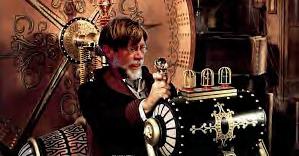
often wrong. In 1680, for example, Puritan minister William Hubbard mixed up the Thompson and Mason settlements in his “General History of New England.” Hubbard also suggested, against all evidence, that London fishmongers Edward and William Hilton arrived with David Thompson. Hubbard theorized that the Hiltons established a parallel outpost at Dover Point in 1623. Careful study, however, shows Thompson was dead and gone before the Hiltons set up their tiny outpost.
“Historical facts seem often to have lain, in Hubbard’s mind, in a loose and chaotic form,” New Hampshire judge and scholar Elwin Page wrote prior to the state’s 300th anniversary in 1923. "There is not a shred of proof that William and Edward Hilton came over with Thompson,” Page and others concluded.
Reverend Jeremy Belknap repeated Hubbard's errors in the first published history of New Hampshire in 1784. As early state
documents resurfaced in the 19th century, researchers tried to replace town legends with facts — an often fruitless task.

In the words of English dictionary writer Samuel Johnson, “Many things which are false are transferred from book to book, and gain credit in the world.” Hubbard’s unsupported claim caused a dust-up between Dover and Portsmouth during a New Hampshire bicentennial in 1823. Both towns held separate celebrations. Two centuries later, the feud continues and the debunked Hilton claim is still widely misreported.
To be honest, our 1823 bicentennial was a copycat affair. In 1807, up to 3,500 visitors attended the Grand National Jubilee at Jamestown, Virginia. Reviving the all-but-forgotten Pilgrim story in 1820, Plymouth, Massachusetts, claimed to be the spiritual and democratic heart of the nation. “We feel that we are on the spot where the first scene of our history was laid,” orator Daniel Webster proclaimed.
After three devastating downtown fires and the War of 1812, Portsmouth needed an economic reboot. Taking a page from the Plymouth playbook, the state’s only seaport staged a hastily planned anniversary celebration in 1823. But there was no cohesive origin story to promote. Instead, Portsmouth town leaders proudly announced the city was founded in 1623 by “merchant adventurers” in search of land and wealth. It wasn’t sexy, but it was true.
The Seacoast has been throwing anniversary parties ever since, marked by pageants, patriotic parades and souvenir publications, plus T-shirts and tote bags. But it’s hard to top a Mayflower replica, a mythical rock, a national holiday feast and a reconstructed Pilgrim village alive with costumed characters. David and Amias Thompson, for those who care to look, remain ghostly figures adrift in our stormy past. NH
J. Dennis Robinson is the author of over a dozen history books. His latest projects include “Portsmouth Time Machine,” a graphic history for kids illustrated by Robert Squier, and a myth-busting study entitled “1623: The Forgotten Arrival and Sudden Disappearance of NH’s Founding Family.” For updated info, please visit jdennisrobinson.com.


It’s at the moment I find myself standing unexposed in the slot between the catcher and the batter as an 85-mph fastball is coming toward my face that I start to question recent life decisions.
KEVIN FLYNN | PHOTOGRAPHY BY P.T. SULLIVAN
After surviving stage 4 cancer, vocal cord surgery, a global pandemic and the general destabilization of civil society, I decided it was time to have a midlife crisis give back to my community. But what could I do? Crossing guard? Blood donor? State fair parking lot flag waver?
Somehow the thought of umpiring baseball popped in my head. The local youth league always seemed to need umps. The rec department might even have a mask and those giant pillows I could borrow. I made a call.

The league organizer asked, “Are you patched?”
“You mean, like in a motorcycle gang?”
(See the New Hampshire Magazine June 2011 issue for context.)
All umpires (and other officials) receive a shirt patch to signify they’ve been trained and are in good standing with an officiating
organization. It's like a badge — one that says, “I’m not wearing shin guards for nothing, people.” But how to get that 4-inch cloth disk of respect?
I signed up for the Umpire Development Program run by the New Hampshire Baseball Umpires Association. How hard could this be? I got a boating license after a four-hour course; now I can sail to Portugal if I want. All I need is a long weekend and pointers on how to remove my mask without my cap falling off. Easy peasy!
To my shock, I learned if I wanted that patch I’d have to complete a comprehensive two-year apprenticeship. The instructors were men with decades of years umping at the varsity, NCAA and minor league baseball levels. Several were graduates of professional umpiring schools. One stood behind the plate at last year’s Little League World Series. My apprenticeship would require weeks of studying rules, field mechanics,
coverage rotations, evaluations by trainers, a 100-question state-mandated annual exam and then…maybe…I could be called “Blue.”
As pandemic restrictions on sports began to ease, the National Federation of State High School Associations (NFHS) reported 482,160 young men and women played baseball in 2021-2022; 2,160 of them were in New Hampshire. That makes baseball the No. 1 sport in which players wear a hat. All those games need umpires; otherwise, it’s gym class.
Most levels use a crew of two umpires to work a game: one for the plate, one for the bases (more umpires for semi-pro, one ump for some youth leagues). My first junior varsity game, I was the base umpire. This will be so easy, I thought. I just stand at first base and call everyone out after routine ground balls. In the top of the first inning,

I called the third strike on a check swing and made the emphatic out signal on a dramatic sweep tag on the line. From my perch at the bag, I was having the greatest time. Plus, I was making $68!
I forgot sometimes runners actually get on base and now I’ve got a whole infield and most of the outfield to watch. I had to dive to the grass to get out of the way of a shortstop’s throw. I needed an oxygen tank running the bases after back-to-back triples. There was a rundown between first and second base in which I was zigzagging like a ping pong ball thinking, We didn’t get to this in class yet!
In preparation for working the plate, I bought all the required equipment. Rather than order it through specialty websites, I went to the local sporting goods store to get shin guards, chest protectors and the like. Those stores sell mostly to catchers whose equipment is designed to be worn over the uniform, not under. Lumbering out to the field, I looked like if Iron Man wore his costume under his clothes like Clark Kent did.
It was also dawning on me that to call balls and strikes, I wouldn’t have that computer-generated box on TV to help me. Instead, I’d have to use my judgment from my squat position between the batter and catcher on pitches all the way on the other side of the plate.
“That’s a sssteeeerrreeebaaaall?”
Coaches aren’t allowed to argue that a pitch wasn’t a ball or a strike. But they have a whole other code for letting you know how they feel.
“Hey [pitcher’s name], good miss.”
Translation: that didn’t miss.
“Hey [batter’s name], that’s not yours.”
Translation: that’s not a strike.
“Hey [catcher’s name], where was that?”
Translation: not where the ump said it was.
“Aw [umpire’s name], you’re better than that.” Translation: sounds encouraging, but not actually a compliment.
It wasn’t long until the head coach had enough. “Hey Blue, I don’t wanna argue balls and strikes…”
(Removes mask. Cap falls off.) Then don’t
argue balls and strikes, I thought.
I’ll point out that the coach did this while I was being evaluated. Not by one instructor, but six of them. I froze because it was such an absurd moment; I thought the evaluators put him up to it. The next time I got evaluated, a coach came out to argue a missed runner’s lane interference call at a jamboree. A jamboree! That’s a scrimmage with hot dogs. They don’t even keep score at a jamboree.
If I wanted that patch, it was going to take a lot more work.
It’s said that 80 percent of the game is played with 20 percent of the rules. If you’ve ever played in the sandlot, you know baseball can run on autopilot. But when things get wacky, the umpire plays cop, judge and executioner as the expert in the rules.
There are 27 ways to balk in baseball, and I’ll reimburse your subscription to New Hampshire Magazine if you can name six of them. *

The biggest peddlers of misinformation are TV play-by-play announcers. Their knowledge of certain rules come only from other play-by-play announcers, perpetuating mendacious falsehoods we assume are canonical.
“Tie goes to the runner.” No, the runner beats the throw to the base or he doesn’t. “Hands are part of the bat.” No, hands are part of the batter. “If he doesn’t go around, it’s a check swing.” That’s a good guideline, but the rule is actually whether the batter tried to strike at the ball.
Things are going fine until a batter interferes with a catcher’s throw to a third baseman who’s obstructing a runner that failed to touch second base. That’s when you call time, leave the field and go back to bed.
Once word gets around that you’re umpiring, you’ll be recruited to work in all kinds of games. Each year in New Hampshire there are about 6,000 baseball games played. Little League, Babe Ruth, Cal Ripken, AAU.

Wood bat leagues. No stealing leagues. Leagues for players under six. Leagues for players older than 60. I worked a 50+ game in which — no joke — someone pulled a hamstring every other inning.
These leagues often contract with a group, like the Granite State Umpires Association, who’ll assign officials for their games. There are roughly 300 active umpires in the state. Many of them (as well as our fellow softball umpires) are covering a game every night and six or more each weekend from April to October. On a Saturday, they may do six innings in Keene, then rush for seven more in Laconia, before ending it under the lights in Nashua. (Dude, that’s a lot of squats.)
I umped a lot for children’s leagues. Baseball is a game of intergenerational trauma. Often you’ll see a kid crying because he’s being yelled at by his father who’s working out his own daddy issues.
These games feature lots of pitches that roll to the backstop and walks that turn into triples because Asher can pitch, but he can’t catch. The catchers often can’t catch either.
When things get wacky, the umpire plays cop, judge and executioner as the expert in the rules.
Think you can be a varsity umpire?


Make the correct call based on the high school rulebook.
1. The infield fly rule is in effect when… (Rule 2-19)
a. Bases loaded, no outs
b. First and third, one out
c. First and second, two outs
d. Anytime an infielder can catch a high popup with “ordinary effort”
2. How many warm-up pitches may a starting pitcher throw? (Rule 6-2-2 Exception)
a. Not more than five
b. Not more than six
c. Not more than seven
d. Not more than eight
3. With one ball and two strikes on Jones, the opposing coach notices Smith is supposed to be the proper batter. (Rule 7-1-1)
a. Jones is out
b Smith is out
c. Smith resumes Jones’s at-bat with a 1-2 count
d. Smith starts the at-bat over with a 0-0 count
4. On a popup in fair territory, the catcher catches the ball with his detached mask instead of his glove. (Rule 8-3-3b)
a. Batter is out
b. Catcher is ejected
c. Batter and runners are awarded one base
d. Batter and runners are awarded three bases
5. The rulebook says this infraction makes “a travesty of the game.” (Rule 8-4-2n)
a. Throwing a bean ball at a batter
b. Wearing your cap sideways
c. Running the bases in reverse order
d. “The wave”
I always name my bruises after them. I’ve got “Jaxxon” on my forearm, “Colter” on my bicep and “Korben” on the top of my head (envision the trajectory of that pitch). I took a few off the face mask too. You can never be too careful when a foul ball might come ba... (smashes mask, cap falls off)...zzzzzzzzz.
These U10 teams also have a player-todad/assistant coach ratio of two-to-one. I love it when a grown man wearing the same pajamas as a bunch of the 8-year-olds comes storming out to say that I can’t be serious.
I’ve found adult players (who play through their 20s and beyond) have less fun now playing the game they found fun as a
child. They’re grinding like they’re playing for a contract extension. Also many young players and parents in developmental or travel leagues — teams that cost a lot to get on — want their money’s worth. They don’t want some patchless umpire squeezing Grayson’s strike zone.
“Hey Blue, are you kidding me?!”
(Removes mask. Cap falls off.) Man, I think, Grayson’s grandma suuuucks.
The one thing people want to know when I tell them I’m umpiring is whether I’ve
ejected anyone. They assume I have kill marks painted on my wall. The answer is no, I’ve never ejected anyone. They ejected themselves
Even though arguing an umpire’s judgment call is literally against the rules, it’s been normalized by our sport’s culture. We’ve come to believe it’s alright — Nay, required! — for a coach to come on to the field to yell and kick dirt until they’re removed. We don’t tolerate that in any other sport. And loving parents, many of whom may be more invested in the game than their kids are, bark like mad dogs at every adult and child (including their own)
when a call doesn’t go their way.
Among those hundreds and hundreds of New Hampshire high school games last year, there were fewer than a dozen ejections. Giving someone the heave-ho isn’t as fun as you might think. And it has nothing to do with the paperwork (yes, there is paperwork). It’s usually some exceptional display of poor sportsmanship, some act that sours the game for players and spectators alike. Profanity. Malicious contact. Physical intimidation.
Since 2018, 50,000 referees and umpires nationwide have quit officiating because of verbal and physical abuse from coaches and
parents. Thriving in that environment requires an extraordinarily thick skin, or, in my case, going home and ugly-crying like Claire Danes in “My So-Called Life.” We’re striving for a new baseball culture, one in which mature people show respect, keep their calm and set an example. My take, however, is if you’re a touch hole off the field, you’ll probably be a touch hole on the field.
The burnout of officials and aging ranks of veterans has created an existential crisis for all youth sports. A shortage of umpires, referees and judges is already forcing the cancellation of games and the shuttering of leagues. There is an effort to turn this around.

The umpires I’ve worked with are like you. They come from all walks. They’re laborers. They’re teachers. They’re car salesmen. They’re office workers. And many of them are retirees with decades of experience that need to be recaptured if these sports will thrive.
Whatever sport you played — even if it wasn’t during this century — is in need of people like you to get trained up and get on the fields and courts. Even if most of your sporting experience has been from the comfort of your couch, if you have the passion and the will to do the work, officiating can be rewarding. It’s your chance to preserve the future of that sport for today’s athletes and tomorrow’s stars.
Schools and communities offer a variety of sports in need of arbiters. In addition to basketball and football, there’s field hockey, nordic and alpine skiing, diving, volleyball, cheer and many others. Search online for those state officiating associations to learn about their apprenticeship programs. Not everyone will succeed, but all can try.
With enough effort, you can earn your patch, just like I did. Now when that 85mph pitch is zipping straight at my face, I stay locked in without flinching, watch it curve into the zone, then come up big with a towel-ripping punch-out move and a confident “steeerike three!”
“Hey Blue! What was that?! Are you blind?!”
(Removes mask. Cap stays in place.)
“You didn’t like that last call? You’re not going to like this one. YOU’RE OUT OF HERE!” NH
“Some say the antique syndrome surfaced to offset the newness of the land, the homes and the settlers. Some say the interest was initiated by a desire to return to the roots of yesterday. I contend the entire movement to acquire antiques was born out of sheer respect of things that lasted longer than 15 minutes.”
 — Erma Bombeck
— Erma Bombeck
Good ol’ Yankee ingenuity puts us way above the fray when it comes to the modern concept of reusing, recycling and repurposing home furnishings. Finding ways to recast items runs in our blood, and New Hampshire antiques shops are a testament to that tradition.
The state is dotted with great shops featuring all kinds of antiquities from different periods. You’ll find purveyors that cater to every price range and taste level, with fine pieces you wouldn’t dream of updating, alongside bargain finds begging for a little paint and fresh hardware.
In a cookie-cutter world, antiques and vintage finds offer a laundry list of positivity. At the top, originality and uniqueness. When everyone else has a Pottery Barn cupboard, you can own something well-made that’s stood the test of time and can be recast in your own paint treatment if desired. Value can be found in a piece’s pedigree, lower price and ability to be reused to fit perfectly into your home’s design.
Make sure to have room in your car for larger finds, along with bungee cords or rope for tying items down. Bring recycled newspaper or bubble wrap for breakables and a tape measure to make sure whatever you find will fit wherever you want it.
Look for items that speak to you — and, of course, that fit your budget. Most shops have a discount price on their objects if you ask, or you can ask the shopkeeper to call the dealer. Be fair in your offer and don't simply lowball. Fifteen-to-20-percent-off is considered fair and reasonable.
A great way to usher in a new season and inexpensively up-style your home is using tabletop items filled with flowers. Galvanized containers, glass jars and boxes are all useful for making mini garden displays. Flowering plants, bulbs, herbs and mini shrubs can be combined in a container to create a centerpiece or focal point.
Paint and paper can easily update a furnishing in very short order. Pick a color palette that suits you and add your own personal style to a favorite vintage find.
Be on the lookout for items that aren't just collectible, but also have multiple uses.
• Galvanized farm containers like milk pails and grain bins make clever seasonal planters.

• Glass storage jars can be reused for fresh flowers, terrariums and candle holders.
• Vintage picnic tins and baskets are great for storage or portable gardens.



DISH GARDEN > A wire garden spire becomes a stand of floating shelves for a collection of vintage ironstone dishes. Restyle easily with a fresh mix of pottery.

Check out a list on page 61 of Matthew’s favorite shops for antiques and vintage finds around the state.


 BY KRYSTEN GODFREY MADDOCKS / ILLUSTRATION BY GLORIA DIIANNI
BY KRYSTEN GODFREY MADDOCKS / ILLUSTRATION BY GLORIA DIIANNI
we can see it is because it’s a big pollen that settles out of the air faster than the other tree pollens.
Birch pollen, on the other hand, comes out at the same time, but it’s so small that it can float in the air for hundreds of miles. So, the next time you see pine pollen on your car, think of it as a warning sign that birch and other tree pollens are out, which are probably the real cause of your symptoms, not pine!
Is there anything you can do to prevent allergies in the first place?
There are things you can do to reduce your risk, you cannot fully prevent allergies. Some studies show that keeping allergen levels down in your home can reduce the risk of developing allergies and asthma.
• You can start by removing carpets and rugs, which can collect allergens over time. If you can’t remove these (or don’t want to), vacuum them at least once a week with a HEPA filter vacuum.
• Don’t let pets on your bed even if you aren’t allergic to them — they can track in pollens from outside.
• Taking a shower at night can help by rinsing pollen off your body before you get into bed.
When the ice melts and the weather begins to warm up, you might be excited to resume outdoor walks, runs or bike rides. But if you’re one of the more than 25% of American adults who reported having a seasonal allergy to the Centers for Disease Control, re-entering the great outdoors could pose a health risk. While we can’t prevent seasonal allergies, there are some precautions you can take and allergy treatments on the market that could make spring more bearable for the adults who suffer.
Dr. Erin L. Reigh, M.D., M.S., F.A.C.A.A.I., staff physician in the Section of Allergy & Clinical Immunology at Dartmouth Hitchcock Medical Center, answers some of the most common questions about spring allergies here.
What are some of the most common spring allergies in New Hampshire, and when do they typically present?
In our area, allergy symptoms typically start around April. Common symptoms include stuffy nose, runny nose, sneezing fits and itchy, watery eyes. If you have asthma, you may also get wheezing and shortness of breath.
When spring allergy season starts in New Hampshire, the first thing that comes out is tree pollen. Some of the most allergenic tree pollens we see in New Hampshire are birch, oak, maple and elm. People often talk about pine pollen causing their allergy symptoms because pine pollen is easy to see — it’s the yellow dust that coats everything in the spring. But pine pollen is actually one of the weakest tree pollen allergens. The reason
• Get allergy covers for your mattress and pillows to prevent allergens from building up over time — we spend a lot of time in our beds, so it’s worthwhile to keep this area free of allergens. Wash your sheets once a week to help with that.
• Finally, keep windows closed when the pollen counts are high.
If you already have seasonal allergies, start your allergy medications about a month before allergy season to prevent or reduce the severity of symptoms when the pollens come out. It’s better to prevent symptoms than try to control them after they’ve started.
There is also evidence that people with seasonal allergies can reduce the risk of developing asthma by going on allergy shots, which desensitizes them to their allergens.
If you think you might have allergies, how should you go about getting them tested? The best way to test for allergies is with a skin test, which you can get done in an allergist’s office. This involves scratching a droplet of allergen against the skin and waiting about 15 minutes to see if the patient develops an itchy bump there. A positive test looks a bit like a mosquito bite. There are also blood test panels that can be done to look for allergies, but they aren’t quite as sensitive as the skin test and are more likely to miss an allergy.

What are some common allergies that present later in life? Can they be serious? Allergic rhinitis is very common. It causes nasal congestion, sneezing, itchy nose and runny nose. Allergic rhinitis isn’t life-threatening, but it can have a big impact on quality of life. Many patients describe it as feeling like they are “always coming down with a cold,” which is a terrible way to feel every day! Allergies can interfere with sleep quality, leading to fatigue.




Allergies can also lead to nasal polyps, which are balloon-like areas of swelling in the nose. Nasal polyps make it very difficult to breathe through the nose and can reduce someone’s sense of taste and smell. Imagine not being able to taste your favorite foods anymore — these are some of the ways allergies can affect your quality of life even when they are not dangerous.



There are also a few conditions caused by environmental allergies that are more serious. Many people get itchy, watery eyes with their allergies. Most of the time, this is uncomfortable but not dangerous. However, in rare cases, eye allergies can be severe enough to affect someone’s vision. If you ever experience blurry vision, eye pain, a gritty sensation in your eyes, or thick mucus drainage from your eyes with your allergies, you should be evaluated by a doctor because it could be a sign of a more serious condition.

Finally, asthma is another condition that can occur with seasonal allergies that is more serious. Asthma symptoms include wheezing, trouble breathing, chest tightness and cough. Asthma “attacks” or “flares” can be triggered by exposure to allergens such as pollens, which can cause an increase in wheezing and shortness of breath. Sometimes this is severe enough to require a trip to the emergency room to get symptoms under control. Fortunately, we have a lot of


great medications to control asthma that reduce the risk of this happening. If you think you have asthma, you should see a doctor so you can be started on medications to control it.
Are there any new, noteworthy allergy treatments available?
We’ve seen a lot of amazing therapies come out in the past 10-15 years to help treat asthma. These new medications, called biologics, are very targeted medications that block allergic inflammation and can be highly effective. Unfortunately, they are incredibly expensive — often costing more than $30,000 per year without insurance. Because of the price tag, most of our patients don’t go on these medications unless traditional therapies, such as inhalers, aren’t working.
Some biologics have also been approved for nasal polyps. Nasal polyps often require sinus surgery, tend to come back over and over again, and can be really frustrating to live with. These new drugs have been life-changing for some of my patients with nasal polyps. The price tag limits our use, though, which is unfortunate.
There are also a few oral desensitization
options that have been approved by the FDA. Desensitization is a process where we slowly expose a patient’s immune system to their allergen and essentially train it not to react to the allergen anymore. Traditionally, if someone wanted to be desensitized to their allergens, they would have to come into the allergy clinic for

have the ability to come in for shots. Is it possible to suddenly become allergic to something at an older age? Why is this so?
It is possible to become allergic to something at any age, but it’s much more common to develop allergies in childhood — 80% of people who develop allergies do so before the age of 20.
shots. This is a huge time commitment, especially for people who live hours away from the nearest allergy clinic. There are now three FDA-approved oral desensitization tablets: dust mites, grass pollen and ragweed. These tablets can be taken at home, which is great for people who don’t
Why people develop allergies is still one of the biggest questions in the field of allergy. It’s probably a combination of factors, including genetics and your environment. Having eczema, for example, increases the risk of developing allergies. With eczema, the skin can get very inflamed and irritated. When allergens like pollens touch the inflamed skin, your immune system is already primed and ready to attack, so it’s more likely to see the allergen as a threat and react to it. There is also data that shows higher allergen levels in the home increase your risk of developing allergies, so how much allergen you are exposed to can be a factor, too. However, there are still a lot of unknowns when it comes to why we develop allergies. NH

Why people develop allergies is still one of the biggest questions in the field of allergy. It’s probably a combination of factors...
the homeless in the Granite State. Dress is black tie optional. 6 p.m., Wentworth by the Sea, 588 Wentworth Rd., New Castle. (603) 436-2218; crossroadshouse.org
May 4
Taco Tour Manchester > The world’s largest taco tour returns to Manchester to take Elm Street by the taco. With over 60 restaurants serving tacos for $3 each, a concert in Veteran’s Park and Elm Street completely closed down to traffic, the taco will reign supreme once again in the Queen City. Attendees can vote for their favorite taco, and the winning restaurant will receive the Golden Taco Trophy and $1,000 to donate to the charity of their choice. 4 to 8 p.m., Downtown Manchester. tacotourmanchester.com

May 5-6
40th Annual NH Farm, Forest & Garden Expo > This family-friendly event features a variety of engaging exhibitors, agriculture experts, educational workshops and demonstrations of interest to homeowners, hobby-farmers and industry members alike, including barnyard animals, agricultural demonstrations, children’s programs and activities, livestock and horticultural competitions and more. Demonstrations include working sawmills and heavy equipment. To celebrate 40 years, the beloved annual event will be held at the Deerfield Fairgrounds. Friday 9 a.m. to 7 p.m., Saturday 9 a.m. to 4 p.m., Deerfield Fairgrounds, 32 Stage Rd., Deerfield. (603) 851-8624; nhfarmandforestexpo.org
May 6
21st Annual Benefit by the Sea > Support the good work being done to break the cycle of homelessness on the Seacoast by Cross Roads House while enjoying a wonderful evening with likeminded individuals. Learn more about the collective impact we all can make for the hundreds of individuals and families who come to us in need of shelter. This event will take place at the gorgeous Wentworth by the Sea as attendees enjoy a cocktail hour, formal dinner, live music and a dessert lounge. There will also be an opportunity to make a pledge of support for Cross Roads House. This gala is a vital part of securing the necessary funds to continue providing shelter and life-changing services for
May 7
Paws for Compassion Brunch > This fundraiser for Pope Memorial SPCA of ConcordMerrimack County features a delicious brunch, silent auction and social time with adoptable pets waiting for a good home. Grappone Conference Center, 70 Constitution Ave., Concord. (603) 856-8756; popememorialspca.org

May 7
Camienne Financial Cinco de Miles 5K > Celebrate Mexico’s independence and bring the whole family to participate in the festivities. The first 1,500 to register will receive a free quarter-zip pullover. After you finish the race, take a break to enjoy chips and salsa and redeem your cervesa and margarita tickets. $10-$35. 9:15 a.m., Bedford High School, 47 Nashua Rd., Bedford. millenniumrunning.com

May 8
NHBCA 39th Annual Arts Awards Gala >
Save the date for the 39th annual gala event, where attendees join together in celebrating art and community. The NHBCA educates, motivates and recognizes business support of and participation in the arts. They also advocate for the value of the arts in economic, social and community development, and facilitate people and projects that enhance engagement in the arts. DoubleTree by Hilton, 700 Elm St., Manchester. nhbca.com New Hampshire Magazine is a proud sponsor of this event
May 13
Amherst Garden Club Annual Plant Sale >
At the Amherst Garden Club’s flagship event, the organization sells more than 2,000 potted perennials each year, dug by hand from gardens in and around Amherst. This year the org will be highlighting native plants, instructing why they’re so vital to the environment. Vendors will be peddling veggies, herbs, hanging pots, houseplants, garden ornaments, container pots and more. Kids can pot a flowering plant for their special moms, along with delicious home-baked items to eat or for gifting. 8:30 a.m. to 1 p.m., Wilkins School, 80 Boston Post Rd., Amherst. amherstgardenclub.org
May 13-14
NH Sheep and Wool Festival > Currently in its 45th year, the festival features programming both for producers of sheep and wool and for those of us who are just fans. Don’t miss the long list of workshops and demos on woolen clothes-making, or for a good laugh, the human-and-sheep-partnered costume contest. $10. Saturday 9 a.m. to 5 p.m., Sunday 9 a.m. to 4 p.m., Deerfield Fairgrounds, 32 Stage Rd., Deerfield. nhswga.com
May 13-14, 20-21
New Hampshire Renaissance Faire > Noble knights and fair maidens alike will find something to enjoy in this longstanding Granite State fête. Spread across two weekends and a massive fairground venue, this Best of NH award-winning event includes everything from an archery range and knight, pirate and gypsy encampments to a zoo animal area said to contain real dragons. $10-$15. Brookvale Pines Farm, 154 Martin Rd., Fremont. (603) 679-2415; nhrenfaire.com

May 19-21
The Thing in the Spring > Founded in 2008, The Thing in The Spring is a legendary annual New Hampshire music and arts festival that works to bring the outside world in and connect myriad undergrounds in accessible ways. Originally in Peterborough, The Thing now calls Keene’s Nova Arts home. This year’s headlining acts include Bill Callahan, Mali Obomsawin Sextet, Guerilla Toss, Maria Chavez and more. $30-$75. Friday 4 to 10 p.m., Saturday 12 to 10 p.m., Sunday 9 a.m. to 7 p.m., Nova Arts, 48 Emerald St., Keene. novaarts.org. Yankee Publishing is a proud sponsor of this event
May 14
Rock ’N Race > Join more than 5,000 runners, walkers and volunteers participating in the largest charity race north of Boston. All funds raised at this event support Concord Hospital Payson Center for Cancer Care to make a difference in the lives of cancer patients and their families. You can help by sponsoring a participant, volunteering, underwriting a service or making a donation. $30. 6 p.m., Concord State House, 107 North Main St., Concord. (603) 227-7162; giveto. concordhospital.org
May 14
Howie Mandel > Howie Mandel has remained a constant force in show business for more than 30 years. He can currently be seen on NBC’s flagship series “America’s Got Talent,” where he has served as a judge for 11 seasons. He recently finished production on his new documentary “Howie Mandel: But Enough About Me.” In 2019, he released his first solo special in 20 years, “Howie Mandel Presents: Howie Mandel at the Howie Mandel Comedy Club.” See Mandel in Portsmouth’s historic Music Hall. $52.50-$98.50. 7 p.m., The Historic Theatre at the Portsmouth Music Hall, 28 Chestnut St., Portsmouth. (603) 436-2400; themusichall.org
May 20
Exeter Arts & Music Festival > There’s no shortage of Seacoast-area festivals on the calendar this summer, but you can get a head start on the season with this fest from Town.Exeter.Arts. Music. There’s plenty of family programming, but this party is especially impressive with attractions like a rock climbing wall, an ecovillage and sets from hip local musicians to supplement the standard arts festival fare. $10. Swasey Parkway, Exeter. (603) 512-8396; teamexeter.com

May 20-21
Lakes Region Spring Craft Fair > Over 100 exhibitors will be displaying their handsome soy candles, wrought iron creations, macrame chairs and swings, cedar wood furniture, pottery and more. Saturday 10 a.m. to 5 p.m., Sunday 10 a.m. to 4 p.m., Tanger Outlets, 120 Laconia Rd., Tilton. (603) 387-1510; joycescraftshows.com
May 27-28
Memorial Day Weekend Craft Fair > Over 120 exhibitors will be displaying their fine jewelry, pottery, gourmet foods, quilts and so much more. 10 a.m. to 5 p.m., Schouler Park, 1 Norcross Circle, Route 16, North Conway. (603) 387-1510; joycescraftshows.com
May 17
Bedrock Gardens 2023 Seasons Opens > This emerging public garden integrates unusual botanical specimens and unique sculpture into an inspiring landscape journey. This 37-acre site is transitioning from a historic farm and private garden to a public oasis of art, horticulture and inspiration. Visit a garden that The Boston Globe described as “one of the most beautiful and intriguing landscapes in New Hampshire.” Plan your spring, summer and fall with some time in this oasis. Bring your family and friends outdoors. Order a box lunch or bring a picnic. $15. 19 High Rd., Lee. (603) 659-2993; bedrockgardens.org

May 28
Memorial Day Weekend Fireworks Show at Hampton Beach > Bring a blanket and the whole family to kick off summer with this incredible fireworks display. 9:30 p.m., Hampton Beach, 115 Ocean Blvd., Hampton Beach. (603) 926-8717; hamptonbeach.org
May 28
Wildquack Duck Race & Music Festival > The 33rd Wildquack Duck Race & Music Festival features an entire community, family, fun-filled day in the park with so much to do throughout the day that the events have their own brochure. This free event features food, duck races, kids activities, traveling train rides, an incredible silent auction, live music from local favorites Al Shafner and Dennis & Davey and wares by local artisans on display and for purchase. The day’s events start at 8 a.m. and the first duck race goes off at 1:45 p.m. 18 Main St., Jackson. (978) 580-0905; visitwhitemountains.com
Find additional events at nhmagazine.com/ calendar. Submit events eight weeks in advance to Caleb Jagoda at cjagoda@nhmagazine.com or enter your own at nhmagazine.com/calendar. Not all events are guaranteed to be published either online or in the print calendar. Event submissions will be reviewed and, if deemed appropriate, approved by a New Hampshire Magazine editor.

When I was a kid, the annual Mayfly hatch was almost as exciting as the first day of deer hunting season. Fishin’ and huntin’ with the family — now that’s entertainment. Hunting, in the end, turned out not to be my bag. But fishing’s dramatic. You never know what lies just beneath the surface. Might be something. Might be nothing. Toss in a baited hook or flick your rod to set a fly upon the water. Wait. The fish, if there’s a hungry one in the vicinity, checks out the offering and decides to strike. Or not.
Fishing with my folks involved digging worms, loading the boat, untangling lines, swatting mosquitos and waiting expectantly and in silence for a nibble. Except during the Mayfly hatch, when — on the right pond on a May evening when thousands of newborn bugs rise to the surface all at once — the fish lose their fishy minds and chomp just about anything that floats, especially feathers threaded on a hook just so.

The Mayfly hatch was about the only time we were sure (as sure as anything in life ever is) to catch our limits. Ten fish per person back then, enough to feed us for a week. Trout dredged in flour and corn meal, fried
in bacon fat with garlic. Oh, yuh. Them’s good eatin’.
We enjoyed eating the fish as much as they enjoyed eating the Mayflies. Mayflies, on the other hand, don’t eat. No mouths. No time. Once hatched, the male lives only a day or two; the females, about five minutes. Just long enough to mate and produce eggs, which is, of course, the point.
Mayflies don’t live long; stories, on the other hand, can live forever in one incarnation or another.
At a storytelling class in Plymouth, Jane said we’d met before. Did I remember her? I didn’t…at first. Until she said, “I told you the story about the Cockermouth River.”
Knock me over with a feather. My synapses zapped. I did remember Jane and her story. It was a cockah (aka corker). Turns out she heard the story years ago from her friend Neil, who heard it from…well, you get the picture. It had been hatched and rehatched for decades.
In Ghana, storytellers traditionally say, “This is my story which I have told to you. Whether it be sweet or not sweet, let it go forth and, pray, let it come back to me some day.” Sure enough, Jane’s story had come back to me:
The Cockermouth River connects to Newfound Lake. At one time salmon ran so heavy upriver in spring you could practically walk across on their backs. Of course, when salmon head upstream to spawn, it’s illegal to fish for them. Wouldn’t be fair. They have other things on their minds.
One day Nancy — behind her house hanging laundry — heard gunshots down by the river. In some parts of the world when you hear gunshots you run the other way. But this part of the world, in those days, when you heard gunshots, you headed out to investigate. What going on? It ain’t deer season nor bird season either.
Nancy dropped her laundry basket and walked cross country through the field, through the woods, to the bank of the Cockermouth, where she spotted her neighbor Charlie sitting crosslegged with his .22 across his knees. “What are you doing?” she asked.
“Shootin’ muskrats,” he said.
Nancy looked. Beyond him in the ferns she spotted five large salmon all laid out not looking too lively.
“Muskrats, huh?”
“Yup,” Charlie said. “Scaly buggahs, ain’t they?” NH
BY REBECCA RULE / ILLUSTRATION BY BRAD FITZPATRICK

If you are su ering from a medical condition, you might consider joining one of the clinical trials at Dartmouth Health. As a health system with the region’s top academic hospital, we bring promising research and breakthroughs to the treatment of many illnesses.
By joining a clinical trial you may help others and could contribute to nding new treatments for future care.
Learn more about Dartmouth Health clinical trials at dartmouth-hitchcock.org/clinicaltrials

‘A step forward’ needs you.